Weight Loss
How to start your journey to lose weight.
- Published March 22, 2021
- 10 minute read


In This Article
Whether you’re at the very beginning of your weight-loss journey or revisiting your game plan after hitting a plateau, a realistic and sustainable strategy is a must for your first 30 days and beyond.
To successfully lose weight and keep it off, it’s important to adopt a nutritious diet and create a calorie deficit (slightly less calories in than out through day-to-day living and exercise), add in regular movement , effectively deal with stress, make sure you’re getting enough sleep, surround yourself with a supportive community and keep your motivation up in the face of inevitable challenges and setbacks.
The good news is you don’t have to completely overhaul your lifestyle to lose weight — a simple back-to-basics plan is the way to go. That’s why we broke it down for you, week by week, for the first 30 days (or whenever you need a healthy reset).
WEIGHT LOSS JOURNEY WEEK 1: CREATE A FOUNDATION FOR CHANGE
Dedicate your first week to preparing your mind, environment and routine to support healthy living.
FIND YOUR “WHY”
“It’s common for motivation to wax and wane during weight-loss efforts, so it is imperative that you establish a clear ‘why’ in terms of the reason you are engaging in the weight-loss effort in the first place,” says Katie Rickel, PhD, a clinical psychologist and CEO of Structure House , a residential weight-management facility in Durham, North Carolina.
This increases your sense of autonomy or self-control and helps you shift your perspective from “I have to” eat healthier and exercise to “I want to” create new habits to get me closer to the life I desire, thus empowering you to make positive changes, adds Alan Chu , PhD, director of the Motivation and Performance Research Lab and chair of the Sport, Exercise and Performance Psychology Program at the University of Wisconsin–Green Bay.
ACTIONS TO TAKE:
- Freewrite or make a list of your “whys,” from having the energy to keep up with your children or partner to feeling more comfortable in your body.
- Create a vision board or collage of your “why.”
- Write yourself a letter from your future self (after having achieved your weight-loss goals) to your current self, describing all the ways your life has improved as a result of your efforts.
- Put up notes around your home like on your bathroom mirror or fridge with mantras, photos or reminders of your “why.”
ESTABLISH YOUR BASELINE
Setting goals and tracking progress is important for any weight-loss plan, but for realistic goals you can actually hit, you need to figure out your baseline first. “Understanding your starting point will make it easier to pinpoint where to make meaningful changes that will get you the results you’re looking for,” confirms Christel Oerum, a certified personal trainer and owner of Diabetes Strong and Diabetic Foodie .
“This is also the beginning of mindful eating, a lifelong practice that can take a lifetime to fully develop but can help you eat less and enjoy what you’re eating more as well as improve your relationship with food,” adds Audra Wilson, RD, a certified strength and conditioning specialist, a board-certified specialist in obesity and weight management at the Northwestern Medicine Metabolic Health and Surgical Weight Loss Center at Delnor Hospital .
- Use an app like MyFitnessPal and log everything you eat and drink for the whole week without judgment.
- As you go, note your emotions about food and brainstorm other coping mechanisms for stress, anxiety, worry or boredom, such as calling a friend or doing deep breathing exercises, suggests Wilson.
- Track your movement, step count and workouts with the MyFitnessPal app as well.
MASTER THE ESSENTIALS
Proper sleep, stress management and hydration are essential for your overall health and weight-loss efforts. If they’re not covered, it’s that much harder to lose weight when you have to battle increased cravings for comfort foods from off-kilter hunger hormones due to sleep deprivation and stress or feel hungry and low on energy because you’re not drinking enough water.
- Set a consistent bedtime and wake-up time to ensure you’re getting 7–9 hours of quality sleep each night.
- Make your bedroom a sleep sanctuary that’s cool, dark and comfortable.
- Incorporate a simple morning and evening routine to reduce stress with meditation, gentle stretching or other self-care activities.
- Keep a water bottle or large glass of water on hand to drink when you first wake up.
WEIGHT LOSS JOURNEY WEEK 2: SET GOALS AND PRACTICE SELF-COMPASSION
Now that you’ve built a springboard, make a nutrition and movement plan and swap perfectionism for self-compassion.
CREATE AND TRACK SMART GOALS
Focusing on progress boosts your drive and self-confidence while only paying attention to the outcome (the number on the scale) can hurt motivation when you don’t get the results you want, says Chu. That’s why progress-based SMART goals that are specific, measurable, achievable, realistic and time-bound are your secret weapon for weight loss.
With the information you collected during week 1, take a look at your baseline calorie and macronutrient intake and step count. Then, set a calorie goal for slow-and-steady weight loss and a step count goal that makes sense for you and your lifestyle. Use the MyFitnessPal app to chart your progress so you can notice trends and make healthier choices.
EXAMPLES OF SMART GOALS:
- Walk an average of 1,000 more steps per day for one week with a midday walk during my lunch break.
- Eat within 100–200 calories of my calorie goal each day for one week by reducing portion sizes for snacks and dinner.
DIVERSIFY YOUR GROCERY LIST AND MAKE SMALL CHANGES
To avoid feeling deprived during your weight-loss journey, shift your focus from “giving up” high-calorie processed foods and sugary drinks to “ adding in ” tasty lower-calorie whole foods to your eating plan, suggests Rickel.
- Challenge yourself to try one new fruit or vegetable this week as a culinary adventure with new recipes and cuisines .
- Add more vegetables to your lunch and dinner by mixing them into soups, sauces, salads and more. “Any way you slice them, veggies are full of nutrients and will help you cut calories while still feeling satisfied at mealtime,” notes Wilson.
- Find satisfying swaps for some high-calorie indulgences such as banana berry “nice” cream instead of traditional ice cream or sparkling water for half of your week’s soda intake. If there’s no great substitute for an indulgence, enjoy a smaller portion size or adjust your intake elsewhere to stick with your overall calorie goal.
ADOPT A MINDSET OF SELF-COMPASSION
“For someone who has not practiced healthy habits before, it can be hard and exhausting to maintain them,” says Chu. Worse yet, if you see yourself as “lazy” for eating “bad foods,” this can zap motivation and trigger even worse habits (Think: “I already ate poorly. I might as well eat more junk food.”)
This is where treating yourself like you would a close friend — or adopting a mindset of self-compassion — can help keep your motivation up and protect you from negative thought spirals. Throughout this week, make it a point to notice when you’re being hard on yourself and practice self-compassion instead of toxic perfectionism.
HERE’S HOW TO DO IT IN THE MOMENT:
- Be mindful and acknowledge your feelings (“I’m feeling really anxious and upset right now.”)
- Remind yourself that this is a common, human experience (“Everyone feels like this sometimes.”)
- Be kind to yourself (“I’m going to be compassionate with myself.”)
WEIGHT LOSS JOURNEY WEEK 3: REVIEW YOUR PROGRESS AND BUILD YOUR SUPPORT SYSTEM
Reflect on your first round of SMART goals, set new ones, and recruit friends and family to help you stick it out long-term.
SET SMARTER GOALS
Goal-tracking takes time, so block out 10–20 minutes each week—such as on a Sunday evening or Monday morning—to review your progress and set new goals. Rather than getting down on yourself if you haven’t met goals, use this intel to set SMARTER goals (with evaluation and revision), suggests Chu.
- Evaluate your progress. Did you hit your goals or fall short? How and why?
- Revise your goals to make them easier if you couldn’t reach them or a notch harder if you were successful.
CELEBRATE CONSISTENCY
Whether you met your calorie goal, increased your step count, or just managed to track both for the entire week, that’s progress worth celebrating. To boost your motivation, find ways to acknowledge meaningful wins each week regardless of whether you shed pounds, says Rickel.
- Put colorful stickers or check marks on your chart or calendar to mark days or weeks when you’ve reached a goal or hit a personal record.
- Reward yourself with a non-food prize such as new workout gear or a fun weekend activity.
If you had a challenging week, remember to practice self-compassion. Major lifestyle changes take time and research shows speaking to yourself in a positive manner helps you reach your goals faster.
FIND EXERCISES YOU LOVE AND GET SOCIAL
A regular workout routine not only helps tip the calorie balance in your favor to make maintaining weight loss easier, but it also boosts mood levels and decreases stress. To be consistent, you shouldn’t dread your workout — instead, it should be something you genuinely love and look forward to doing. “Choose a workout that suits your routine and lifestyle, and recruit family or friends to join in,” says Chu.
- Pick a type of exercise that’s the optimal balance of challenging yet approachable, such as lifting weights once a week with a goal to eventually lift 2–3 times a week or brisk walks to gradually build up to walking or running a 5K .
- Find someone in your life who values fitness and healthy living as much as you do and agree to regular check-ins if you can’t work out together.
- On days when you don’t feel like working out, try lowering the difficulty or setting a goal just to start the workout (like giving yourself permission to stop after 15 minutes). “Once you do, you’re likely to feel good and exercise longer than initially expected,” notes Chu.
WEIGHT LOSS JOURNEY WEEK 4: CONTINUE BUILDING ON YOUR PROGRESS
For the last week of month one, take a look at how far you’ve come and add structure to make healthy lifestyle changes more sustainable.
REVISIT YOUR GOALS
By now, you should have a good idea of how to set, track and celebrate SMART goals. Like the week before, take some time to assess your progress and setbacks. Then set new, SMARTER goals to tackle this week.
Keep in mind that “every 2–4 weeks, it’s also a good idea to revisit your calorie goal and make adjustments as necessary to combat weight-loss plateaus,” notes Oerum.
START MEAL PLANNING
When it comes to healthy eating , planning ahead can help you save calories and money by reducing impromptu drive-thru trips and delivery orders. Beginning this week, designate a day for meal planning.
- Follow this basic template for the week’s grocery shopping: 4–5 lean protein sources (such as beans and legumes, tofu, fish, chicken, eggs and turkey), 2–3 complex carbohydrates (sweet potatoes, brown rice, quinoa, whole-grain pasta), and 4+ vegetables (mixed greens, kale, broccoli and cauliflower, asparagus, carrots), suggests Wyosnick.
- Buy pre-cut, washed and frozen produce, so it’s ready to go and easy to use.
- Use the plate method for healthy portion sizes at each meal (fill half your plate with non-starchy vegetables like leafy greens, a quarter with protein and a quarter with complex carbs).
ASK FOR HELP
Losing weight is challenging, and the first month of your weight-loss plan is just the beginning of a lifelong health journey. If you’re struggling to see results, stick with a routine or battling body image issues, don’t hesitate to reach out for professional help. Depending on your needs, a healthcare provider , registered dietitian , psychologist or certified personal trainer could help you address underlying health issues and establish the perfect plan for you.
Originally published March 2016, updated with additional information in March 2021
Ready to take the next step? Unlock MyFitnessPal Premium to access custom goal settings, quick-log recipes, and guided plans from a registered dietitian. Premium users are 65% more likely to reach their weight loss goals!
About the Authors
Meet the people behind the post, related articles, more inspiration for you.
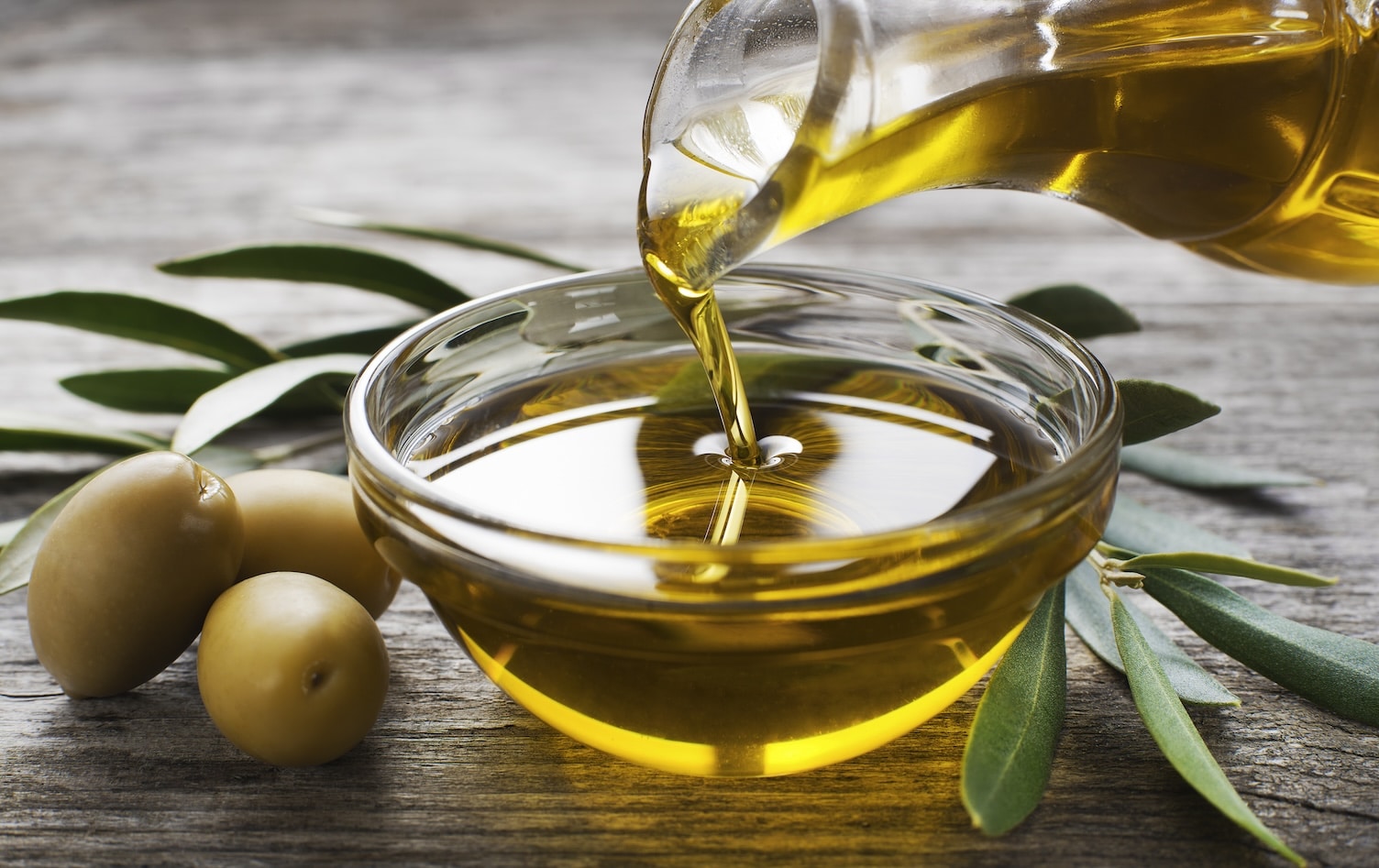
Is Vegetable Oil Bad For Your Health?
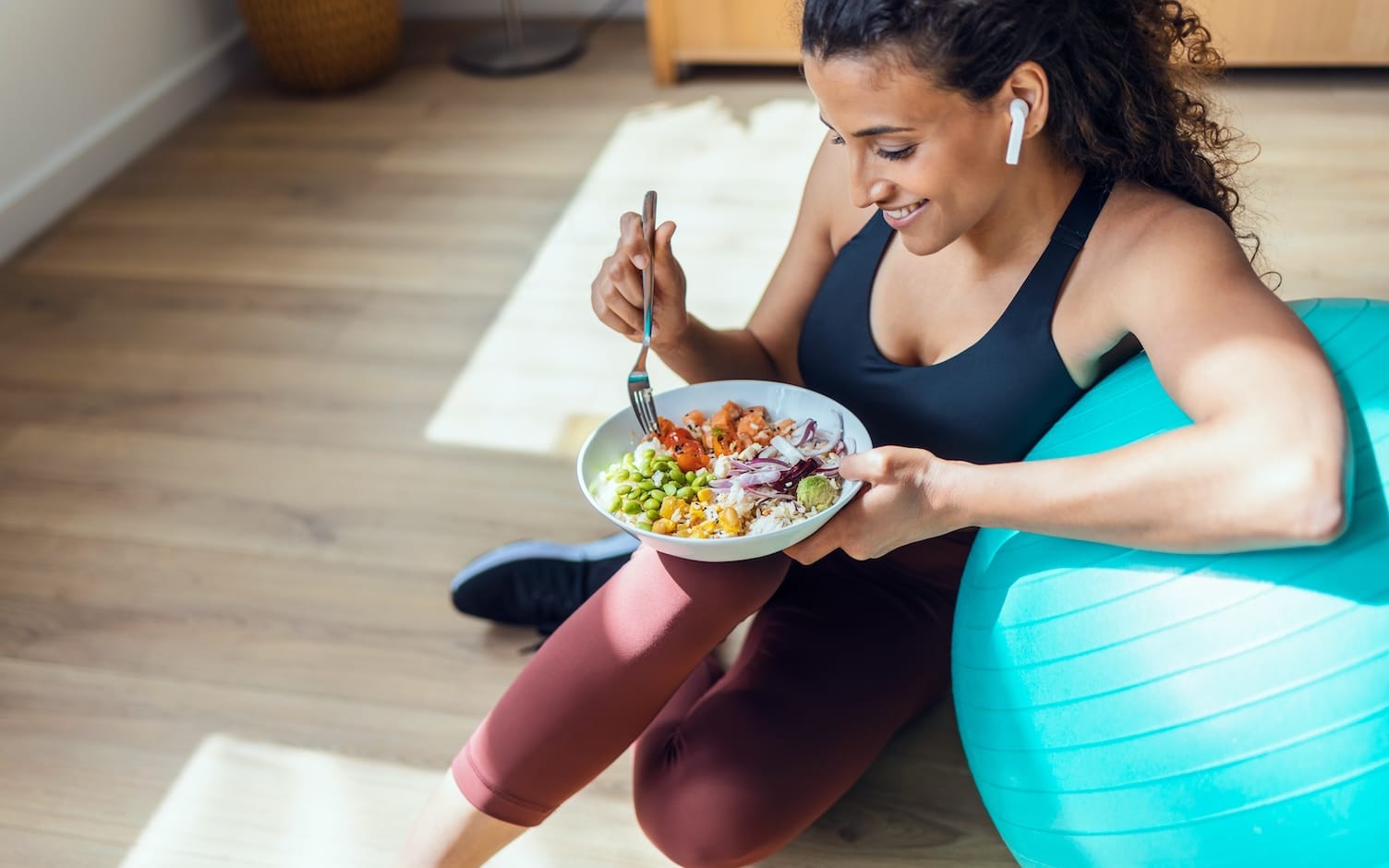
The Potential Link Between Your Gut Microbiome and Weight Loss
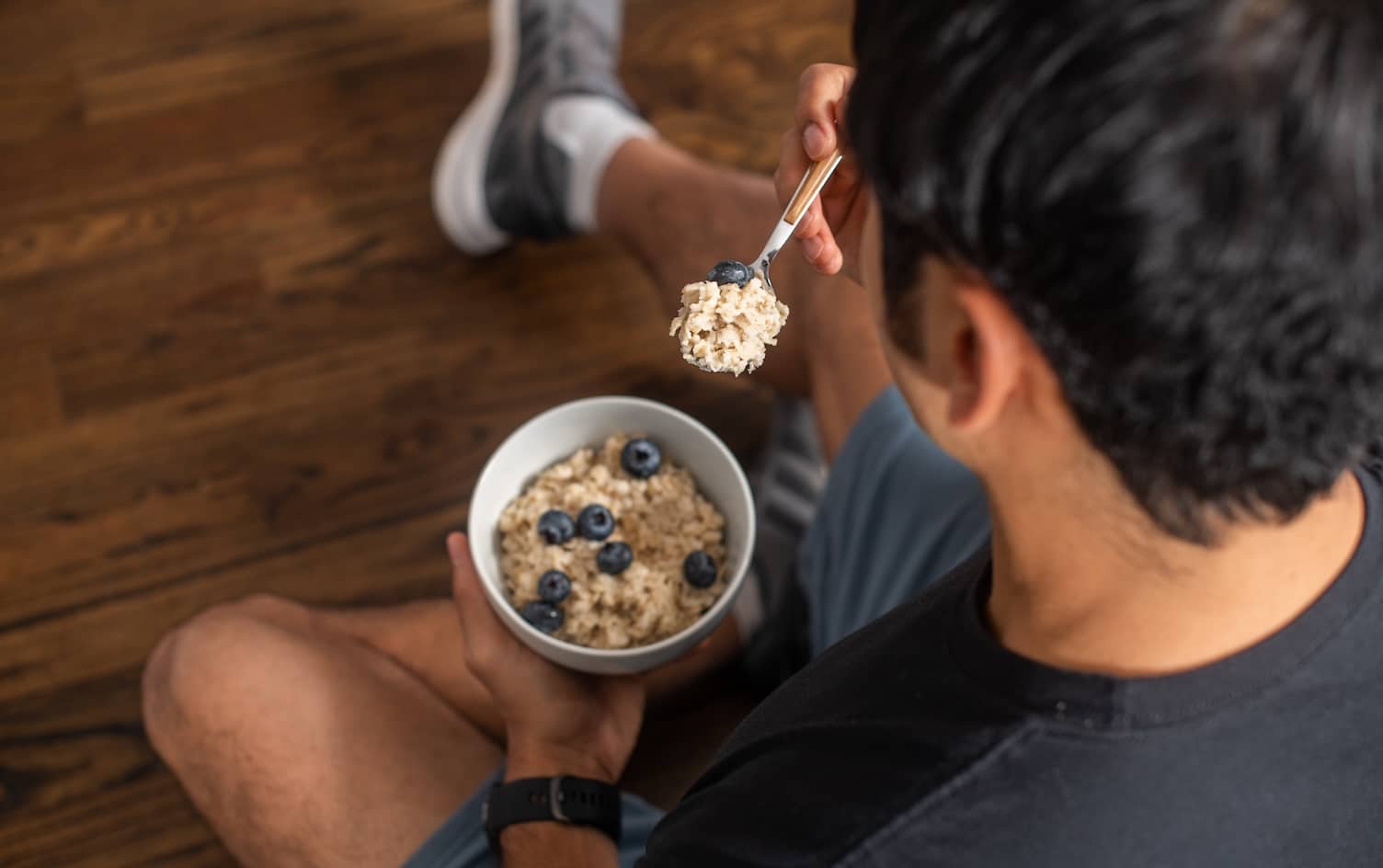
Why Healthy Eating May Cause Stomach Issues

Got Gut Health? 5 Symptoms of an Unhealthy Gut
Recent posts.
Find your healthy, and your happy.
- Support Centre
- © 2024 MyFitnessPal, Inc
- Community Guidelines
- Cookie Preferences
- Do Not Sell My Personal Information
- DOWNLOAD THE APP
Appointments at Mayo Clinic
- Weight loss
Weight loss: 6 strategies for success
Follow these proven strategies to reduce your weight and boost your health.
Hundreds of fad diets, weight-loss programs and outright scams promise quick and easy weight loss. However, the foundation of successful weight loss remains a healthy, calorie-controlled diet combined with increased physical activity. For successful, long-term weight loss, you must make permanent changes in your lifestyle and health habits.
How do you make those permanent changes? Consider following these six strategies for weight-loss success.
1. Make sure you're ready
Long-term weight loss takes time and effort — and a long-term commitment. While you don't want to put off weight loss indefinitely, you should make sure you're ready to make permanent changes to eating and activity habits. Ask yourself the following questions to help you determine your readiness:
- Am I motivated to lose weight?
- Am I too distracted by other pressures?
- Do I use food as a means to cope with stress?
- Am I ready to learn or use other strategies to cope with stress?
- Do I need other support — either from friends or professionals — to manage stress?
- Am I willing to change eating habits?
- Am I willing to change activity habits?
- Do I have the time to spend on making these changes?
Talk to your doctor if you need help addressing stressors or emotions that seem like obstacles to your readiness. When you're ready, you'll find it easier to set goals, stay committed and change habits.
2. Find your inner motivation
No one else can make you lose weight. You must undertake diet and exercise changes to please yourself. What's going to give you the burning drive to stick to your weight-loss plan?
Make a list of what's important to you to help you stay motivated and focused, whether it's an upcoming vacation or better overall health. Then find a way to make sure that you can call on your motivational factors during moments of temptation. You might want to post an encouraging note to yourself on the pantry door or refrigerator, for instance.
While you have to take responsibility for your own behavior for successful weight loss, it helps to have support — of the right kind. Pick people to support you who will encourage you in positive ways, without shame, embarrassment or sabotage.
Ideally, find people who will listen to your concerns and feelings, spend time exercising with you or creating healthy menus, and share the priority you've placed on developing a healthier lifestyle. Your support group can also offer accountability, which can be a strong motivation for sticking to your weight-loss goals.
If you prefer to keep your weight-loss plans private, be accountable to yourself by having regular weigh-ins, recording your diet and exercise progress in a journal, or tracking your progress using digital tools.
3. Set realistic goals
It may seem obvious to set realistic weight-loss goals. But do you really know what's realistic? Over the long term, it's smart to aim for losing 1 to 2 pounds (0.5 to 1 kilogram) a week. Generally to lose 1 to 2 pounds a week, you need to burn 500 to 1,000 calories more than you consume each day, through a lower calorie diet and regular physical activity.
Depending on your weight, 5% of your current weight may be a realistic goal, at least for an initial goal. If you weigh 180 pounds (82 kilograms), that's 9 pounds (4 kilograms). Even this level of weight loss can help lower your risk of chronic health problems, such as heart disease and type 2 diabetes.
When you're setting goals, think about both process and outcome goals. "Walk every day for 30 minutes" is an example of a process goal. "Lose 10 pounds" is an example of an outcome goal. It isn't essential that you have an outcome goal, but you should set process goals because changing your habits is a key to weight loss.
4. Enjoy healthier foods
Adopting a new eating style that promotes weight loss must include lowering your total calorie intake. But decreasing calories need not mean giving up taste, satisfaction or even ease of meal preparation.
One way you can lower your calorie intake is by eating more plant-based foods — fruits, vegetables and whole grains. Strive for variety to help you achieve your goals without giving up taste or nutrition.
Get your weight loss started with these tips:
- Eat at least four servings of vegetables and three servings of fruits daily.
- Replace refined grains with whole grains.
- Use modest amounts of healthy fats, such as olive oil, vegetable oils, avocados, nuts, nut butters and nut oils.
- Cut back on sugar as much as possible, except the natural sugar in fruit.
- Choose low-fat dairy products and lean meat and poultry in limited amounts.
5. Get active, stay active
While you can lose weight without exercise, regular physical activity plus calorie restriction can help give you the weight-loss edge. Exercise can help burn off the excess calories you can't cut through diet alone.
Exercise also offers numerous health benefits, including boosting your mood, strengthening your cardiovascular system and reducing your blood pressure. Exercise can also help in maintaining weight loss. Studies show that people who maintain their weight loss over the long term get regular physical activity.
How many calories you burn depends on the frequency, duration and intensity of your activities. One of the best ways to lose body fat is through steady aerobic exercise — such as brisk walking — for at least 30 minutes most days of the week. Some people may require more physical activity than this to lose weight and maintain that weight loss.
Any extra movement helps burn calories. Think about ways you can increase your physical activity throughout the day if you can't fit in formal exercise on a given day. For example, make several trips up and down stairs instead of using the elevator, or park at the far end of the lot when shopping.
6. Change your perspective
It's not enough to eat healthy foods and exercise for only a few weeks or even months if you want long-term, successful weight management. These habits must become a way of life. Lifestyle changes start with taking an honest look at your eating patterns and daily routine.
After assessing your personal challenges to weight loss, try working out a strategy to gradually change habits and attitudes that have sabotaged your past efforts. Then move beyond simply recognizing your challenges — plan for how you'll deal with them if you're going to succeed in losing weight once and for all.
You likely will have an occasional setback. But instead of giving up entirely after a setback, simply start fresh the next day. Remember that you're planning to change your life. It won't happen all at once. Stick to your healthy lifestyle and the results will be worth it.
There is a problem with information submitted for this request. Review/update the information highlighted below and resubmit the form.
From Mayo Clinic to your inbox
Sign up for free and stay up to date on research advancements, health tips, current health topics, and expertise on managing health. Click here for an email preview.
Error Email field is required
Error Include a valid email address
To provide you with the most relevant and helpful information, and understand which information is beneficial, we may combine your email and website usage information with other information we have about you. If you are a Mayo Clinic patient, this could include protected health information. If we combine this information with your protected health information, we will treat all of that information as protected health information and will only use or disclose that information as set forth in our notice of privacy practices. You may opt-out of email communications at any time by clicking on the unsubscribe link in the e-mail.
Thank you for subscribing!
You'll soon start receiving the latest Mayo Clinic health information you requested in your inbox.
Sorry something went wrong with your subscription
Please, try again in a couple of minutes
- Hensrud DD, et al. Ready, set, go. In: The Mayo Clinic Diet. 2nd ed. Mayo Clinic; 2017.
- Duyff RL. Reach and maintain your healthy weight. In: Academy of Nutrition and Dietetics Complete Food and Nutrition Guide. 5th ed. John Wiley & Sons; 2017.
- Losing weight: Getting started. Centers for Disease Control and Prevention. http://www.cdc.gov/healthyweight/losing_weight/getting_started.html. Accessed Nov. 15, 2019.
- Do you know some of the health risks of being overweight? National Institute of Diabetes and Digestive and Kidney Diseases. https://www.niddk.nih.gov/health-information/health-topics/weight-control/health_risks_being_overweight/Pages/health-risks-being-overweight.aspx. Accessed Nov. 15, 2019.
- 2013 AHA/ACC/TOS guideline for the management of overweight and obesity in adults: A report of the American College of Cardiology/American Heart Association Task Force on Practice Guidelines and The Obesity Society. Journal of the American College of Cardiology. 2014; doi:10.1016/j.jacc.2013.11.004.
- 2015-2020 Dietary Guidelines for Americans. U.S. Department of Health and Human Services and U.S. Department of Agriculture. http://health.gov/dietaryguidelines/2015/guidelines. Accessed Nov. 15, 2019.
- Physical activity for a healthy weight. Centers for Disease Control and Prevention. http://www.cdc.gov/healthyweight/physical_activity/index.html. Accessed Nov. 15, 2019.
Products and Services
- A Book: Mayo Clinic Family Health Book, 5th Edition
- Newsletter: Mayo Clinic Health Letter — Digital Edition
- The Mayo Clinic Diet Online
- A Book: The Mayo Clinic Diet Bundle
- A Book: Live Younger Longer
- Calorie calculator
- Carbohydrates
- Counting calories
- Weight-loss plateau
- Hidradenitis suppurativa: Tips for weight-loss success
- Keep the focus on your long-term vision
- Maintain a healthy weight with psoriatic arthritis
- BMI and waist circumference calculator
- Metabolism and weight loss
- Weight gain during menopause
- Weight Loss After Breast Cancer
Mayo Clinic does not endorse companies or products. Advertising revenue supports our not-for-profit mission.
- Opportunities
Mayo Clinic Press
Check out these best-sellers and special offers on books and newsletters from Mayo Clinic Press .
- Mayo Clinic on Incontinence - Mayo Clinic Press Mayo Clinic on Incontinence
- The Essential Diabetes Book - Mayo Clinic Press The Essential Diabetes Book
- Mayo Clinic on Hearing and Balance - Mayo Clinic Press Mayo Clinic on Hearing and Balance
- FREE Mayo Clinic Diet Assessment - Mayo Clinic Press FREE Mayo Clinic Diet Assessment
- Mayo Clinic Health Letter - FREE book - Mayo Clinic Press Mayo Clinic Health Letter - FREE book
- Healthy Lifestyle
- Weight loss 6 strategies for success
Your gift holds great power – donate today!
Make your tax-deductible gift and be a part of the cutting-edge research and care that's changing medicine.
- Search Please fill out this field.
- Newsletters
- Sweepstakes
- Special Diets
- Weight Loss
How to Lose Weight When You Don't Know Where to Start, According to a Dietitian
These 10 strategies can help when you're feeling overwhelmed. Here are scientifically proven tips, plus advice from someone who's lost 50 pounds and kept it off.
Lainey is a weight-loss dietitian who helps people ditch diets, change their habits and create a healthy lifestyle that lasts. She has Master's in Nutrition Communication from the Tufts Friedman School of Nutrition Science and Policy and completed her dietetics training at Massachusetts General Hospital, a Harvard teaching hospital. She writes on a variety of topics including weight loss, gut health, pregnancy, breastfeeding and trendy diets. When she's not writing or counseling, you can find her on a run, out to brunch, or with coffee in hand trying to keep up with her two little boys.
:max_bytes(150000):strip_icc():format(webp)/lainey-younkin-headshot-1x1-1-24a06801d6af4fbb9ea88f0a706709c2.jpg)
Elizabeth Ward is a registered dietitian and award-winning nutrition communicator and writer. She has authored or co-authored 10 books for consumers about nutrition at all stages of life.
:max_bytes(150000):strip_icc():format(webp)/elizabeth-ward-2000-02e67fa239844547a8a14ab32548560e.jpg)
1. Embrace the Long Game
2. rely on a professional to help, 3. adopt the 80/20 philosophy, 4. understand set point theory, 5. track your food (at least to start), 6. rethink the scale, 7. track other metrics, 8. get moving, 9. focus on fiber, 10. eat protein at every meal, the bottom line.
The clickbait is everywhere with snazzy headlines saying, "Drop 10 lbs. Fast" or "Fit Back into Your Skinny Jeans." But what if you feel like you have an overwhelming amount of weight to lose, and you just don't know where to start?
You may have tried keto , celery juice , detoxes, low-carb, low-fat—you name it. You might even be pretty good at losing weight—the problem is you can't seem to keep it off.
If this sounds like you, keep reading.
"Mindset is like 90% of the work." That's what my client, Sarah, said to me regarding the 50 pounds she lost and has maintained. I'm sharing tips directly from her on how to get started—and stick with it—when you're not quite sure where to start on your weight loss journey.
Changing habits requires repeating the new behaviors over the long term, according to 2021 research in Psychology & Health . This includes setting realistic expectations .
A safe, sustainable amount of weight to lose is about 1/2 pound to 2 pounds per week. In reality, however, that might look more like 2 to 3 pounds per week in the beginning, then perhaps 1/2 pound down the next week, then up a pound the next week, then maintaining for a few weeks before dropping a pound again.
Your weight loss graph will look more like a staircase or a squiggly line than a perfectly straight line. If it's jumping all over the place, but trending down overall, you're doing all right.
This is not the time to try another detox or strict meal plan that an Instagram influencer is promoting. Those are diets in disguise—they work for the short term but not for the long term.
Long-term weight loss is about small habit changes you can keep up with over time. Those who are successful at losing weight usually work with professionals, typically, a health care professional, registered dietitian and therapist.
Yes, a therapist. "I've crash dieted and lost 100 pounds before, and I was physically thinner but not at all mentally healthier, so patience and persistence and the ability to fall down and get up over and over again are key," says Sarah. "Also, if you feel you have an eating disorder, like binge eating, seek help from a counselor that specializes in that."
This journey is hard alone. It can also be hard with close friends and family. Health care professionals provide two important things: science-based weight-loss recommendations and accountability from someone who isn't a close friend.
Weekly, or even daily, check-ins are key to helping you stay on track. "I think the most important things for me have been getting accountability that best matches my personality, always allowing the 20%, perfecting the art of moving on and always zooming out and focusing on the long game," reports Sarah.
Many insurance plans cover visits with registered dietitians and therapists, so check with yours to see if your visits may be covered.
So what is the 20% that Sarah mentioned? Think of it as all of the foods you restrict when you're dieting but eventually end up bingeing on.
Sustainable weight loss is about ditching the all-or-nothing mentality, letting go of the idea that one meal can make or break your efforts and embracing balance. Aim to follow the MyPlate guidelines about 80% of the time throughout the week and on weekends. That means trying to have three meals per day, most days, filling your plate with about one-half of vegetables and fruits, one-quarter of whole grains and one-quarter of protein with some healthy fat.
Then, don't stress about the rest. It's a "flexible structure." No guilt allowed.
The body likes balance. Body temperature stays within a narrow range of 98.6°F. The pH of blood is around 7.4. Your body has a weight range it likes to stay within too: It's called your set point.
Unfortunately, it's easier for this range to move up than it is to move down. This is for various reasons scientists are still trying to figure out. For example, a 2022 study in the journal Obesity found that a 16% weight loss decreased metabolic rate (the number of calories burned at rest) in premenopausal women. Weight loss has also been shown to increase ghrelin, the hormone that signals hunger, in breast cancer survivors, per a 2021 study in NPJ Breast Cancer .
With that said, lowering your set point is not impossible. After all, there are numerous success stories, like the people in the National Weight Control Registry who have lost 30 pounds or more and kept it off for at least one year.
So, how do you do it?
According to Beth Israel Deaconess Medical Center (BIDMC) , crash dieting is not the answer. Instead, aim to lose 5% to 10% of your body weight at one time. "That's the amount of weight you can lose before your body starts to fight back," BIDMC reports on its website.
Then, and here's the hard part, work to maintain that loss for six months before trying to lose another 5% to 10%. This is the time during which people often throw in the towel or opt for the crash diet their friend is doing.
But, if you can stay the course and ride out the maintenance for six months, "You can repeat the cycle and reset your set point again by losing another 10%. Through small, gradual changes in your daily habits, you'll be able to stay at that new, lower weight for the rest of your life. This prescription is vital to outsmarting the body's natural tendencies to regain weight," according to the BIDMC website.
You may also have to reassess your initial weight-loss goal. If you reach a point where you feel great, are healthy and have habits you can sustain for months, but the number on the scale is higher than you'd like, it may be time to embrace a new number.
Research, like the 2019 study in the journal Obesity , suggests that those who track their food are most successful with losing weight and keeping it off.
While tracking isn't meant to be done forever, it can be a helpful tool until new habits stick. A habit is an automated behavior. The more habits you create, the fewer decisions you have to make and the more brain space you have to think about other things.
Starting your weight loss journey by tracking your food intake may give you a better idea about what a serving of oatmeal looks like in your bowl, or how many random handfuls of chips you munch on as you try and figure out what to make for dinner. You can track food in a written diary, by taking photos, in a calorie-counting app or a combination of these.
If you've never tracked calories, it can be a good place to start so you can become familiar with portion sizes and macronutrients (fat, protein and carbohydrates). A word of caution, though—calorie counting can become obsessive and backfire, leaving you out of touch with your hunger and satiety signals. You may be more likely to turn to an app to tell you what and when to eat, instead of listening to your body.
Work with a registered dietitian who can help you figure out the best tracking approach for you and can also review your meals so you have accountability.
A 2021 study in Translational Behavioral Medicine suggests that those who self-monitored their weight lost more of it.
Here's the caveat: Weight should not be the only metric you track. And you need to understand what the scale measures.
The scale does not measure fat—and you do not lose or gain fat overnight.
The scale is a measurement of everything in your body, mostly fluid, but also bones, organs, fat and muscle. The scale will show your weight within about a 3- to 4-pound range and goes up and down for various reasons. If you poop, it goes down. If you eat salty takeout food, it goes up (because salt encourages water retention). A strength-training workout can bump it up, due to a temporary increase in inflammation.
Daily weigh-ins do more harm than good for some people, so weighing once a week might be a good frequency. Or, for some, the scale might need to go. If you find you obsess over the number, it stresses you out too much or you're equating the number to your self-worth, ditch the scale. There are other ways to measure your progress.
Sarah was stressing so much about what the scale would say every Monday that she decided to weigh every day and found it more helpful. "Personally, weighing daily has helped because it's normalized the fluctuations for me and helped me realize when I'm averaging in the wrong direction. There are great apps that plot the average trend of your weight, which helps, but I think overall daily weighing has truly been helpful," says Sarah.
Several of my clients might not see the scale move in months, but they lose inches and feel amazing. In addition to weekly weigh-ins, consider taking waist circumference measurements and progress photos once a month.
Five pounds of fat and five pounds of muscle weigh the same, but muscle takes up less space (and adding more means you're getting stronger), so these metrics help you see body composition changes and will motivate you to keep going.
In addition to how you look, take note of how you feel. Can you walk further, run faster or do a pushup? If you know what they were when you started, have your cholesterol levels or blood sugar numbers improved? Include some goals around what your body can do, rather than how you look.
Diet matters more than exercise for weight loss, but exercise is crucial for keeping off the weight. Plus, exercise has plenty of other benefits .
If you are sedentary and then start moving, you will start burning calories, which will create a calorie deficit. "Finding exercise you love helps to maintain the weight loss," reports Sarah.
Don't know where to start? Start walking. Create small, attainable goals like 15 minutes per day and work up to 30 minutes. If you currently walk 2,000 steps per day, don't try to walk 10,000. Start with 4,000 per day and add more every couple of weeks.
Next, add strength training, using either weights or your body weight. Start with one day per week and work up to two to four times per week. Strength training builds muscle, and muscle burns calories even when you're sitting at your desk all day.
Cardio exercise, like running, biking or swimming, is great too. A good balance is daily walking, strength training two to four times per week and cardio or high-intensity interval training (HIIT) one to three times per week.
Progressively increasing your exercise frequency and intensity will help you stick to it. And the best exercise is the one that you'll keep doing.
A calorie deficit is needed for weight loss, but instead of focusing on what to restrict, focus on what to add. The body breaks down protein, carbohydrates and fat from food and absorbs the nutrients. If you're eating more calories than your body needs, the extra will be stored as fat.
However, the body doesn't absorb or store fiber. Fiber passes through the stomach and intestines largely unabsorbed, bulks everything up and then you poop it out. Fiber is found in fruits, vegetables, whole grains, nuts, seeds, beans and legumes.
By making half your plate vegetables and fruits at most meals, you automatically shift the caloric composition of your meal. For example, 1 cup of pasta or rice is 200 calories, but 1 cup of vegetables is about 30 calories. So not only can you eat more vegetables for fewer calories, but you also get the added benefit of the fiber (as well as vitamins and minerals), which moves through your system slowly, keeping you full longer.
Fiber also expands and slows the emptying of the stomach, which sends signals to the brain that you are full. Gut bacteria feed off fiber and produce short-chain fatty acids, like acetate, which plays a role in regulating body weight, according to a 2019 review in Nutrients .
Aim for 25 to 35 grams of fiber per day or about 8 to 10 g per meal. According to the USDA, 1 cup of raspberries has 8 g of fiber, 1 cup of cooked broccoli has 5 g of fiber and 1/2 cup of black beans has about 7 g of fiber.
Along with fiber, eat protein at every meal, especially breakfast. A 2021 review in Nutrients suggests that when people eat a high-protein breakfast, they have fewer cravings and eat less later in the day.
Protein suppresses the hunger hormone, ghrelin, and is digested slowly, keeping you full longer. When protein is eaten with carbohydrates, it slows the rise of blood sugar, which prevents the spike-and-crash effect that leaves you craving carbs an hour after you eat. Include protein, fiber and healthy fat at each meal.
Protein needs are based on weight, but about 20 g per meal is a good starting point. According to the USDA, a serving of Greek yogurt packs 16 g of protein, and you can pair it with berries for fiber. Three ounces of cooked chicken , about the size of a deck of cards, has about 26 g of protein. Beans are a protein-packed vegetarian option.
If you feel overwhelmed with how much weight you have to lose, start small. Don't try to tackle everything at once. In order to lose weight and keep it off, you need to embrace a long-term mentality and focus on small habit changes. Get professional help so you have accountability and can focus on the habits that move the needle most. Track other metrics, along with the scale. Finally, move your body most days, focus on making half your plate vegetables at meals, get out of the all-or-nothing mentality and celebrate your success along the way!
Related Articles

Everyday Health Special Report: Weight Loss Reframed
25 tips for weight loss that actually work.
From savoring your food to prioritizing protein, check out this practical advice for losing weight, courtesy of registered dietitian-nutritionists.
Over the years, you’ve probably heard your fair share of wacky weight loss recommendations, whether it’s to drink celery juice every day or replace your meals with weight loss “cookies.” While there’s an abundance of misguided advice, there are also many legitimate, research-backed tips for people who are in the right mental health space and have weight loss as a personal goal.
We spoke with nutritionists, registered dietitians, personal trainers, and other experts to give you the most effective and practical tips for weight loss. Here are 25 expert-approved and science-backed tips that can help you achieve and maintain a healthy weight.
An Easy Way To Reduce Fat While Cooking
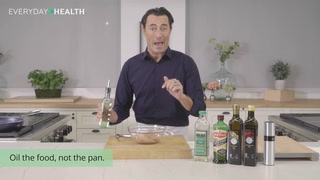
Next up video playing in 10 seconds
1. eat slowly.
“I have my clients learn how to choose foods they like, really taste each morsel going into their mouths, and chew deliberately. I advise them to chew slowly, swallow only when the food is all chewed up, and repeat. It takes time to know we're full. Eating slowly not only allows us to enjoy our food more but gives us better cues of satiety.”
— Janet Zinn , a licensed clinical social worker and psychotherapist in private practice in New York City
2. Enjoy the Food You Eat
“So often we’re told what to eat, and then when we don’t like that specific food, we’re less apt to create long-term healthy habits. Try new fruits and vegetables . Find out how to prepare new dishes that provide variety and flavor. Add herbs and spices to elevate flavor. Or if you prefer, savor the sweetness of fruit and the depth of raw and steamed vegetables. There’s no reason that your relationship with food can’t be pleasurable.”
— Janet Zinn
3. Keep a Daily Gratitude Journal
“Our eating habits are sometimes connected to our emotions, whether we realize it or not. When we're stressed, we may use food to help cope with the stress. I work with clients on keeping a daily journal of things they're grateful for — or even just a journal to write in when stressed — so that they're better prepared to cope with the stress by acknowledging it and utilizing other tools, rather than reaching for food as a coping mechanism.”
— Lauren Manganiello, RD, CSSD , a board-certified sports nutritionist and registered dietitian in private practice on Long Island, New York
Finding the right tools can make a big difference in your weight loss journey. Check out our curated list of the best weight loss apps to help you stay on track, set goals, and achieve your fitness objectives.
4. Batch Cook and Prep
“Every Sunday I batch cook my meals for the week. For breakfast, I combine oats, peanut butter, flax, and protein powder so all I need to do is add water and microwave. I also prepare lunches for the week and pack them in individual containers so I can grab one a day to bring to work.”
— Kyra Williams , a personal trainer in Boston
5. Don’t Forget the Weights
— Kyra Williams
6. Get Enough Z’s
“A lack of sleep increases your hunger hormone, ghrelin, and decreases your satisfaction hormone, leptin, which can contribute to weight gain. When we are sleep deprived , we crave more salty and sweet foods. Why? Because anytime you feel more intense hunger, your cravings for higher energy — aka higher calorie — foods intensify. We also know that the way we think and process our emotions is affected by inadequate sleep, so it’s easy to connect this with an impaired ability to make reasonable choices in many areas of life, including with food. If we flip the coin, we can safely assume that when we are well rested, our bodies work better. When it comes to eating, that would mean that we would eat when we are truly hungry and eat just until satisfied.”
— Angela Lemond , a registered dietitian-nutritionist in private practice in Texas
7. Don’t Skip Meals
— Angela Lemond
8. Stay Hydrated
— Megan Casper, RDN , a nutrition counselor and the founder and CEO of Nourished Bite
9. Cut Calories, Not Flavor
“With flavorful ingredients, a little goes a long way, so you end up reducing the calorie content of meals without sacrificing taste. By choosing options such as sharp cheddar over mild cheddar, you can use less, but you’ll still get a lot of flavor without feeling like you're on a diet.”
— Megan Casper, RDN
10. Reorganize Your Plate
“Make half your plate vegetables, a quarter of your plate whole grains, and a quarter of your plate lean protein . When you switch the portions of grains and vegetables on your plate, you'll see a difference. The only caveat: Potatoes, corn, and peas are starchy vegetables, so they go in the grains category.”
— Lainey Younkin, RD , a nutrition counselor and consultant in Boston
11. Start Where You Are and Do What You Can
“Don't feel like you need to overhaul your entire life starting immediately. Assess where you are currently and then figure out where you’d like to be in the future. A great starting point for people new to exercise is to get a step counter and see how much you walk on a normal day. Then set a step goal slightly higher than the norm and strive for that, working your way up slowly to a goal of 10,000 steps per day.”
— Esther Avant , an online sports nutritionist specializing in weight loss who is based in San Diego
12. Think Big — Not Small
“Focus on the weight loss 'big rocks' — there are a few areas that will give you the most bang for your buck when you're trying to lose weight. Prioritizing those and letting go of all the minutiae that contribute to overwhelm will make reaching your goals feel easier and more sustainable. On the nutrition front, pay attention to calories, protein, and fiber. For exercise, prioritize strength training , daily steps, and recovery.”
— Esther Avant
13. Look Beyond the Scale
“While the scale isn't useless, it also isn't the only thing that matters. To help you gauge progress that might not be reflected on the scale, take regular photos and measurements, in addition to keeping a running list of nonscale victories. This will help keep the scale in perspective and show you all the positive changes you're making to your health and overall lifestyle.”
14. Give Your Breakfast a Protein Boost
“Aim for 15 to 25 grams of protein at breakfast. Protein is digested slowly and suppresses hunger hormones, helping keep you full. Additionally, a high-protein breakfast helps curb cravings later in the day. Pair protein-rich foods with fiber and healthy fats , like two eggs with whole-wheat toast and avocado or high-protein frozen waffles with nuts, berries , and a little maple syrup.”
— Lainey Younkin, RD
15. Consume Protein at Every Meal
“Eating protein-rich foods at every meal, especially breakfast, can help shave extra pounds. Protein slows down the digestive process and positively impacts your hunger hormones. Protein can also do better at staving off hunger than carbohydrates. Protein-rich foods include quinoa , edamame , beans, seeds, nuts, eggs, yogurt, cheese, tofu, lentil pasta, poultry, fish, and meat.”
— Christine M. Palumbo, RDN , a nutrition consultant from Naperville, Illinois
16. Try to Eat Mainly Whole, Minimally Processed Foods
— Christine M. Palumbo, RDN
17. Limit High-Glycemic Carbohydrate Foods
— Sue-Ellen Anderson Haynes, RDN, CDCES , a certified personal trainer and national media spokesperson of the Academy of Nutrition and Dietetics who is based in Boston
18. Experiment With Fruits at Dessert Time
— Sue-Ellen Anderson Haynes, RDN, CDCES
19. Eat a Large Breakfast and a Small Dinner
20. get into meal planning.
“ Meal planning is one of my top tips for staying healthy and eating well. I'm such a fan of the concept that I wrote a book about it! Taking 5 to 10 minutes over the weekend to write out a menu for the week ahead will save you time, money, and unwanted calories down the road. Not sure what to make for dinner tonight? No worries, it's already on your menu plan. Menu planning is a great way to stay organized, and know what groceries you need to buy and what you already have on hand, and it will help ensure a balanced plate. Keep in mind, a night off from cooking and ordering takeout or making a frozen meal is a totally acceptable part of the menu plan. And be sure to write down the plan — you're more likely to stick to it if it's in front of you as a reminder.”
— Jessica Levinson, RDN , a culinary nutrition and communications dietitian based in Westchester County, New York
21. Make a Grocery List and Stick to It
— Jessica Levinson, RDN
22. Take Stock of What’s in Your Kitchen
“To cook healthy meals you need the right ingredients and kitchen tools on hand. Some staple ingredients I recommend having in your pantry, fridge, and freezer are low-sodium canned beans, canned fish, tomato sauce, whole-grain pasta, quinoa , brown rice, low-sodium stock, low-fat plain yogurt, a variety of fresh and frozen fruit and vegetables, olive oil, and dried herbs and spices. These are just some of the ingredients that can form the base of a healthy and delicious meal.”
23. Have the Right Tools on Hand
“Similarly, having a good mix of kitchen tools can help ensure easy, efficient, and healthy cooking. For example, a seasoned cast-iron skillet is one of my favorite pans to cook eggs, saute vegetables, and make pancakes, since I don't have to use as much oil or butter to keep food from sticking. Some of my other favorite kitchen tools are an immersion blender, Instant Pot, baking sheets, measuring cups and spoons, and a hand juicer. And of course anyone working in the kitchen should have a quality set of knives.”
24. Read Food Labels
“Getting into the habit of flipping your packages over can save you time, money, and even calories. Food labels give you a clear picture of what you’re really getting and if you want to lose weight healthfully, it’s not just about how many calories you’re getting — it’s also about what kind of calories you’re getting. To make sure that your meals are valuable, be sure that you’re getting a balance of nutrients without overdoing sodium, sugar, and saturated fat.”
— Bonnie Taub-Dix, RDN , author of Read It Before You Eat It — Taking You from Label to Table
25. Choose Super Snacks
“It’s best to look at your snacks as mini-meals. We are snacking more than ever, so it’s best to choose snacks with benefits, like almond butter and a sliced apple or Greek yogurt topped with fruit and a high fiber cereal. It’s not easy to get everything you need in a day, so nutritionally rich snacks can help fill that gap while also making you feel more full and satisfied.”
— Bonnie Taub-Dix, RDN
The Takeaway
As the experts have noted, there are many effective ways to lose weight. The right way for you depends on your individual goals and preferences. Remember that small changes can make a big difference. And it may take some experimentation to find out which tips work best for you.
Along with dietary changes and meal planning, it may also be helpful to identify why you are trying to make a change, to embrace setbacks, and to get support from friends or family.
Editorial Sources and Fact-Checking
Everyday Health follows strict sourcing guidelines to ensure the accuracy of its content, outlined in our editorial policy . We use only trustworthy sources, including peer-reviewed studies, board-certified medical experts, patients with lived experience, and information from top institutions.
- Lopez P et al. Resistance Training Effectiveness on Body Composition and Body Weight Outcomes in Individuals With Overweight and Obesity Across the Lifespan: A Systematic Review and Meta-Analysis. Obesity Reviews . May 2022.
- Ezpeleta M et al. Efficacy and Safety of Prolonged Water Fasting: A Narrative Review of Human Trials . Nutrition Reviews . May 2024.
- Yes, Drinking More Water May Help You Lose Weight. Johns Hopkins University. January 15, 2020.
- Hall KD et al. Ultra-Processed Diets Cause Excess Calorie Intake and Weight Gain: An Inpatient Randomized Controlled Trial of Ad Libitum Food Intake . Cell Metabolism . July 2019.
- Niwano Y et al. Is Glycemic Index of Food a Feasible Predictor of Appetite, Hunger, and Satiety? Journal of Nutritional Science and Vitaminology . June 2009.
- Roberts SB. High-Glycemic Index Foods, Hunger, and Obesity: Is There a Connection? Nutrition Reviews . June 2000.
- Adults Meeting Fruit and Vegetable Intake Recommendations — United States, 2019. Centers for Disease Control and Prevention. January 7, 2022.
- Lopez-Minguez J et al. Timing of Breakfast, Lunch, and Dinner. Effects on Obesity and Metabolic Risk . Nutrients . November 2019.
- Anderberg RH et al. The Stomach-Derived Hormone Ghrelin Increases Impulsive Behavior . Neuropsychopharmacology . April 2016.
- Silva LV et al. Association of Minimally Processed and Ultra-Processed Food Daily Consumption With Obesity in Overweight Adults: A Cross-Sectional Study. Nutrición Hospitalaria . June 21, 2023.
- Kahleova H et al. Dietary Advanced Glycation Products and Their Associations With Insulin Sensitivity and Body Weight: A 16-Week Randomized Clinical Trial. Obesity Science and Practice . October 17, 2022.
- Landry MJ et al. Cardiometabolic Effects of Omnivorous vs Vegan Diets in Identical Twins. JAMA Network . November 30, 2023.
- Zomeño MD et al. Halo Effect of a Mediterranean-Lifestyle Weight-Loss Intervention on Untreated Family Members’ Weight and Physical Activity: A Prospective Study. International Journal of Obesity . March 3, 2021.
- Yancy Jr WS et al. Comparison of Group Medical Visits Combined With Intensive Weight Management vs Group Medical Visits Alone for Glycemia in Patients With Type 2 Diabetes. JAMA Internal Medicine . November 4, 2019.
- Zhou Y et al. How Online Health Groups Help You Lose Weight: The Role of Group Composition and Social Contact. Digital Health . July 14, 2022.
- Martin-Vicario L et al. The Role of Social Support in Obesity Online Health Communities: A Literature Review. Review of Communication Research . June 2022.
- Phelan S et al. In Their Own Words: Topic Analysis of the Motivations and Strategies of Over 6,000 Long-Term Weight-Loss Maintainers. Obesity . February 9, 2022.
- Luckstein K. Weight-Loss Survey on Mayo Clinic Diet Polled More Than 200,000 People in the U.S. Mayo Clinic . May 25, 2022.
- Lopez P et al. Resistance Training Effectiveness on Body Composition and Body Weight Outcomes in Individuals With Overweight and Obesity Across the Lifespan: A Systematic Review and Meta-Analysis. Obesity Reviews . February 21, 2022.
- Ezpeleta M et al. Efficacy and Safety of Prolonged Water Fasting: A Narrative Review of Human Trials. Nutrition Reviews . June 27, 2023
- Davy B. Clinical Trial Confirms Effectiveness of Simple Appetite Control Method. American Chemistry Society . August 23, 2010.
- Hall K et al. Ultra-Processed Diets Cause Excess Calorie Intake and Weight Gain: An Inpatient Randomized Controlled Trial of Ad Libitum Food Intake. Cell Metabolism . July 2, 2019.
- Lee SH et al. Adults Meeting Fruit and Vegetable Intake Recommendations — United States, 2019. Centers for Disease Control and Prevention . July 7, 2022.
- Lopez-Minguez J et al. Timing of Breakfast, Lunch, and Dinner. Effects on Obesity and Metabolic Risk. Nutrients . November 1, 2019.
- Anderberg R et al. The Stomach-Derived Hormone Ghrelin Increases Impulsive Behavior. Neuropsychopharmacology . October 1, 2015.
How to Lose Weight by Shifting Your Mindset
Start your weight loss journey by understanding your motivation and setting realistic goals.
This article is based on reporting that features expert sources.

Getty Images |
Get your mind right for weight loss.
Every diet and weight loss strategy has its pros and cons, but for any to really work, you’ve got to get your mind right.
“Without the right mindset, your weight loss journey will be more difficult to start, and your goals will be more difficult to achieve,” says Sara Riehm, a registered dietitian and certified specialist in obesity and weight management with Orlando Health in Florida.
Unfortunately, some people try to lose weight while in the worst state of mind possible: wanting to "fix" themselves. They jump into diets and exercise plans, become obsessed with quick results and lose sight of sustainability and even health.
"This type of thinking can be destructive," says Dr. Kevin Campbell, a cardiologist with Health First in Melbourne, Florida. “Rather than focusing on the good that can come from weight loss – such as better health, a longer life, more enjoyment in everyday activities and the prevention of diabetes and heart disease – these folks focus on negative thoughts. Ultimately, a negative mindset leads to failure."
But you don’t have to stay mired in negative thinking.
Here, we offer nine tips for shifting your mindset to support your journey of losing weight.

(Getty Images) |
1. Make your mindset about being healthy, not a number on the scale.
Labels matter – and they can undermine your weight loss efforts.
“The first area where I think people sabotage themselves is by thinking that they’re ‘dieting’ or a ‘dieter.’ I would really love to hear people start saying, ‘I want to change my lifestyle to be healthier, and I want to eat more healthfully for me,’” says Dana Ellis Hunnes, a senior clinical dietitian at UCLA Medical Center and assistant professor at UCLA Fielding School of Public Health in Los Angeles.
That simple shift could have big benefits. Rather than focusing on how much you weigh, you'll be thinking longer term about overall health and well-being.
You can also pair this shift in mindset with a healthier eating plan.
“Focus on eating a healthy diet that is high in quality – as high as (you) can personally afford – and not just on the numbers on the scale because it is very possible to have a shift in body composition ( more muscle, less fat ) but not see changes in the scale number,” Hunnes advises. “Let’s be our healthiest self or our fittest self – not our ‘skinniest’ self.”

2. Make small, sustainable changes.
Adopting a non-diet thought process can support longer-term success.
“Diets are not sustainable and are usually temporary," says Cesar Sauza, a registered dietitian and nutrition manager with AltaMed Health Services in Los Angeles. "Any success with ‘diets’ (is) usually short-term, and weight is typically gained back once the ‘diet’ ends.”
Instead, focus on figuring out your motivation to lose weight and then making small, sustainable changes, which can add up quickly.
These changes can include:
- Cutting out sugary beverages.
- Reducing the amount of processed foods (junk food) and simple carbohydrates you consume.
- Cooking at home more often.
- Boosting your intake of fresh fruits and vegetables .
- Using smaller plates and bowls so that your serving sizes appear bigger than they are in relation to the plate.
- Eat the healthiest foods first so you’re too full to eat the less healthy foods.
- Keep a food and exercise journal, or otherwise track your progress .
- Know your trigger foods – including the ones that make you want to keep eating to excess – and remove them from your pantry.
- Get to bed earlier, and sleep longer .

3. Talk with your health care provider or a dietitian.
Seeking health education from your doctor or a registered dietitian can help ground your weight loss journey in solid, evidence-based information that's tailored to your specific needs.
"Dietitians are usually capable of investigating the underlying cause of excess weight, and they can advise their clients to connect with therapists," notes Sara Bagheri, a health coach and registered dietitian at CalOptima Health in Orange County, California.
Resources for dieters can include:
- Online guides.
- Advice from your physician.
- Support options through wellness benefits at work.
- Educational books focused on weight loss and dieting initiatives.

4. Set goals that support good health.
Changing your body means changing many aspects of your life, including sleeping better, moving more, drinking more water and controlling stress better.
For example, a reasonable and realistic goal might be to eat five servings of fruits and veggies today or to get eight hours of sleep . Did you get them in? If so, you can check another goal off of your list.
To make goal-setting easier, focus on making SMART goals :
- Measurable.
- Attainable.
- Time-bound.
Think of weight loss as just one aspect of taking care of your whole self.

5. Seek accountability.
Finding a workout buddy who will hold you to your set workout times can be a life-changing aspect of any health journey. It can also help you lose weight.
Hunnes also recommends “letting someone you trust wholeheartedly know about your journey."
"They may want to join you and/or support you in it," she adds. "It helps to have support!”
Even something as seemingly unrelated to weight loss can make a world of difference. For example, adopting a dog and taking it out for daily walks can help you move more. Along the way, you may just end up losing some weight while gaining the companionship of a loyal creature.

6. Rethink rewards and punishments.
Food is not a reward, and exercise is not a punishment. They are both ways of caring for your body and helping you feel your best, and you deserve both. Riehm suggests celebrating – without a focus on food – when you hit a milestone.
“It’s difficult to stay focused and maintain motivation for a large goal that won’t be achieved for many months or even years,” she says. “For example, if your goal is to consume at least three servings of fruits and vegetables per day, when you accomplish that goal for the week, treat yourself to a new book or a hot bath. Our rewards should not counteract the changes we’re making.”

7. Don't step on the scale.
While the scale isn't intrinsically bad, a lot of us have learned to associate it with self-destructive thoughts and actions. If that's you, don't even bother stepping on the scale until you get to a place where the number on it doesn't define your worth.
A healthy weight is more than a number on a scale, so find other ways to note your progress, such as changes in how your clothes fit, whether your blood pressure has improved and your overall mood and feeling.
Incremental improvements in these areas can be a great way of tracking your progress without ever stepping on the scale.

Getty Images | iStockphoto
8. Lose the "foods are good or bad" mentality.
Somewhere along the line, we've learned to feel either proud or guilty about every food choice we make. But it's just food, and you shouldn't have to feel guilty about wanting the occasional cookie.
Food is food; it doesn’t make you a bad person or a failure if you eat dessert sometimes. Instead of thinking about what you can’t eat, focus on adding more, healthier foods to your plate at each meal.

9. Don’t let setbacks derail you.
Setbacks are common, and you should expect some bumps in the road.
“Many people get discouraged when their weight loss journey isn’t linear. There may be weeks when your weight is a bit higher than it usually is, but it’s normal for weight to fluctuate from day to day and week to week," Riehm explains.
Rather than focusing on a single number, look at the bigger picture.
"If your weight is trending down overall, functional capabilities are improving and mental outlook is enhanced, you can consider yourself successful in your efforts,” she adds.
What’s more, how much you weigh is just one piece of the overall puzzle of whether you’re healthy. Riehm notes that even a loss of 5% to 10% of your body weight can improve your health.
Lastly, Bagheri urges you to not be afraid of failure.
"Be consistent, and do not give up," she advises. "Enjoy the ride, because along the way you are learning new things and experiencing new habits."

Top tips to shift your mindset and lose weight
- Make your mindset about being healthy, not a number on the scale.
- Make small, sustainable changes.
- Talk with your health care provider or a dietitian.
- Set goals that support good health.
- Seek accountability.
- Rethink rewards and punishments.
- Don't step on the scale.
- Lose the "foods are good or bad" mentality.
- Don’t let setbacks derail you.
More From U.S. News

The Best Foods for Weight Loss

Healthy Meals for Weight Loss

Best Fast Weight Loss Diets
The U.S. News Health team delivers accurate information about health, nutrition and fitness, as well as in-depth medical condition guides. All of our stories rely on multiple, independent sources and experts in the field, such as medical doctors and licensed nutritionists. To learn more about how we keep our content accurate and trustworthy, read our editorial guidelines .
Bagheri is a health coach and registered dietitian at CalOptima Health, a community-based health insurance plan that serves the low-income population in Orange County, California.
Campbell is a cardiologist with Health First in Melbourne, Florida.
Hunnes is a senior clinical dietitian at UCLA Medical Center, assistant professor at UCLA Fielding School of Public Health and author of "Recipe for Survival" with Cambridge University Press. She is based in Los Angeles.
Riehm is a registered dietitian and certified specialist in obesity and weight management with Orlando Health in Florida.
Sauza is a registered dietitian and the clinical nutrition manager at AltaMed Health Services in Los Angeles, California.
Most Popular

health disclaimer »
Disclaimer and a note about your health ».

Your Health
A guide to nutrition and wellness from the health team at U.S. News & World Report.
You May Also Like
Common foot problems in older adults.
Rock Positano May 14, 2024

Picnic Food Ideas
Kathleen Zelman May 14, 2024

Are Bovine Colostrum Supplements Good?
Janet Helm May 13, 2024


ARFID vs. Picky Eating
Vanessa Caceres May 10, 2024

Self-Massage for Nerve Pain
Jake Panasevich May 8, 2024

Healthy Gift Ideas for Men
Barbara Sadick May 8, 2024

Do Ice Baths Work for Recovery?
Vanessa Caceres May 3, 2024

Health Benefits of Mushrooms
Janet Helm April 30, 2024
The 23 Best Low-Carb Vegetables
Elaine K. Howley April 30, 2024
Saline vs. Silicone Breast Implants

Bobbie’s Bests for Less: 50% off handbags, skin care, more
- TODAY Plaza
- Share this —

- Watch Full Episodes
- Read With Jenna
- Inspirational
- Relationships
- TODAY Table
- Newsletters
- Start TODAY
- Shop TODAY Awards
- Citi Concert Series
- Listen All Day
Follow today
More Brands
- On The Show
My Weight-Loss Journey
My Weight-Loss Journey – find out how real people lost hundreds of pounds.
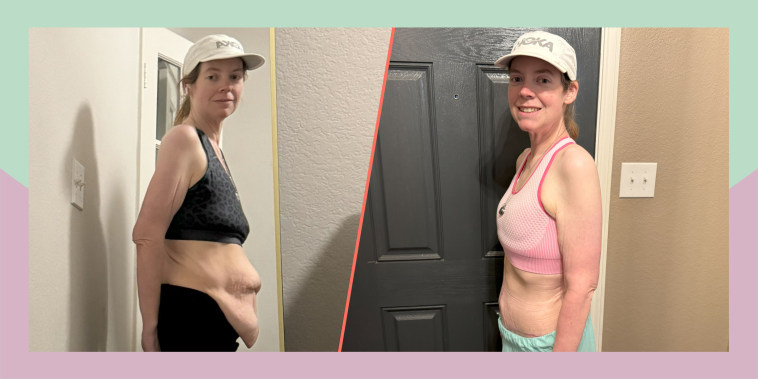
Diet & Fitness
After losing 210 lbs with walking and a low-carb diet, 1 mom has 4 pounds of skin removed.
Kristi Ray Ledgerwood turned her life around with walking, a low-carb diet and medication. She’s had 4.4 pounds of loose skin removed — and has about 15 pounds to go.
Woman loses 80 lbs and becomes a cycle instructor to represent ‘plus-sized woman of color’ on the podium
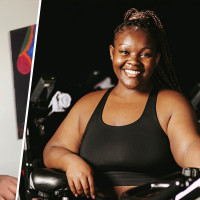
Mom says weight-loss drug gave her 'freedom from food' and helped her lose 65 pounds

1 woman thought she was destined for diabetes — until this 1 realization helped her lose 70 pounds

1 woman loses 150 pounds and gets off 20 medications: ‘I came from a very dark place and now I’m living my best life.’

'I felt worthless.' How 1 man lost 207 pounds and learned to love himself again

After years of yo-yo dieting, this realization helped 1 mom lose 100 pounds for good

Mind & Body
Woman shares struggle of living with obese spouse: 'i lost myself taking care of him'.

Chocolatier loses 105 pounds with Ozempic: 'It just completely transformed my body'

From falling asleep at work to running triathlons: 1 man loses 90 pounds with Mounjaro
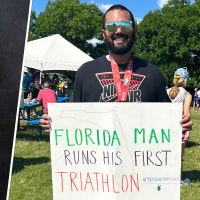
This popular 30-minute workout helped 1 teacher lose 24 pounds in 3 months
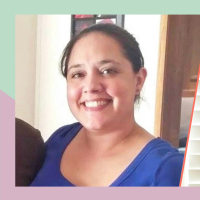
‘Keep it as simple as possible’: 1 couple loses 120 pounds with these small changes

The 3 Stages of Weight Loss, According to Dietitians
Here's what to expect if you're embarking on a weight loss journey.

“Embarking on a weight loss journey is akin to a marathon , not a sprint,” says Dalia Beydoun, R.D . “Each person’s weight loss journey is unique , with its own timeline, hurdles, and milestones. But for the majority of people, safe and sustainable weight loss takes time ."
In general, though, weight loss can be delineated into three stages: rapid weight loss, gradual weight loss, and maintenance. The length of each stage depends on the individual, Michelle Routhenstein, R.D. , preventive cardiology dietitian says. Being able to identify these stages may be a key sign of healthy and sustainable weight loss.
Ahead, dietitians spell out what you should know about the difference stages of weight loss, how much weight you can lose safely, and more.
What are the stages of weight loss?
There are a few.
Stage 1: Rapid Weight Loss
It's not uncommon to see substantial drops in weight right at the beginning of a weight loss journey, as the body adapts to new habits, expands Tiffany Ma, R.D.N .
“[This] ‘rapid weight loss’ stage is the initial, and typically, the shortest stage. This is the time when diet modifications have just begun and there is a significant drop in body weight within a short period,” says Beydoun. During this stage, individuals usually experience a pronounced decrease in water weight, likely due to a reduction in glycogen stores which are used up for energy when the body is in a calorie deficit.
“This stage can last anywhere from a few days to a few weeks, depending on factors such as starting weight, dietary changes, and physical activity levels," she says. "While rapid weight loss can be motivating, much of the initial drop on the scale can be attributed to fluid loss rather than fat loss."
People often incorporate drastic calorie restriction or extreme exercise regimens to hit this rapid weight loss stage quickly, says Routhenstein—as you might see wrestlers do right before a weigh-in, or when someone needs to lose a few pounds to fit into a suit for an occasion. “This approach can lead to muscle loss, nutrient deficiencies, and potential health risks such as gout attacks and liver issues."
Stage 2: Gradual Weight Loss
Gradual, or slow weight loss, is the next stage of losing weight. “As the body adapts to the changes introduced during the rapid weight loss phase, progress may slow down during the second stage,” says Ma. “This phase involves a more gradual and sustainable rate of weight loss, typically ranging from 0.5 to two pounds per week.”
During this stage, individuals may focus on incorporating healthier eating habits, regular physical activity, and behavior modifications to support long-term weight management. It can last for several months or years, depending on the individual.
“The pace of weight loss slows down compared to the initial rapid phase, but it is often more indicative of true fat loss rather than water weight," says Beydoun. You may be losing weight less quickly, but this stage of weight loss is what creates your success for the long haul. It allows for better preservation of muscle mass, reduces the risk of negative health consequences, and promotes long-term weight maintenance.
Stage 3: Weight Maintenance
Once you’ve reached your goal weight range, your attention shifts to sticking at that weight for the months and years to come. This stage may come unintentionally—what was once your calorie deficit becomes your maintenance calories as you lose weight.
“Weight maintenance refers to the phase following successful weight loss where individuals actively work to sustain their achieved weight through continued adherence to healthy habits and lifestyle changes,” says Beydoun. “This phase is key for preventing the regaining of weight by anchoring those long term habits. It involves finding a sustainable balance between calorie intake and expenditure without excessive restriction, maintaining regular physical activity, and monitoring progress."
Weight loss isn't always linear.
If you’re noticing that you don’t go directly from rapid weight loss to gradual weight loss, you’re not alone.
“Between the rapid and gradual weight loss stages, it’s common to experience intermediate phases of weight fluctuations and plateaus. While weight fluctuations are normal, plateaus may often require adjustments to dietary and exercise strategies,” says Beydoun. These stages might make your weight loss journey more challenging, but they do show the value of long term lifestyle changes as opposed to rash, short term extreme diets.
Fluctuation between stages happen when individuals encounter obstacles like plateaus, cravings, and social pressures, Routhenstein says. "Successfully navigating this stage involves adapting strategies, building resilience, and seeking support to overcome setbacks and continue progressing towards long-term weight loss goals."
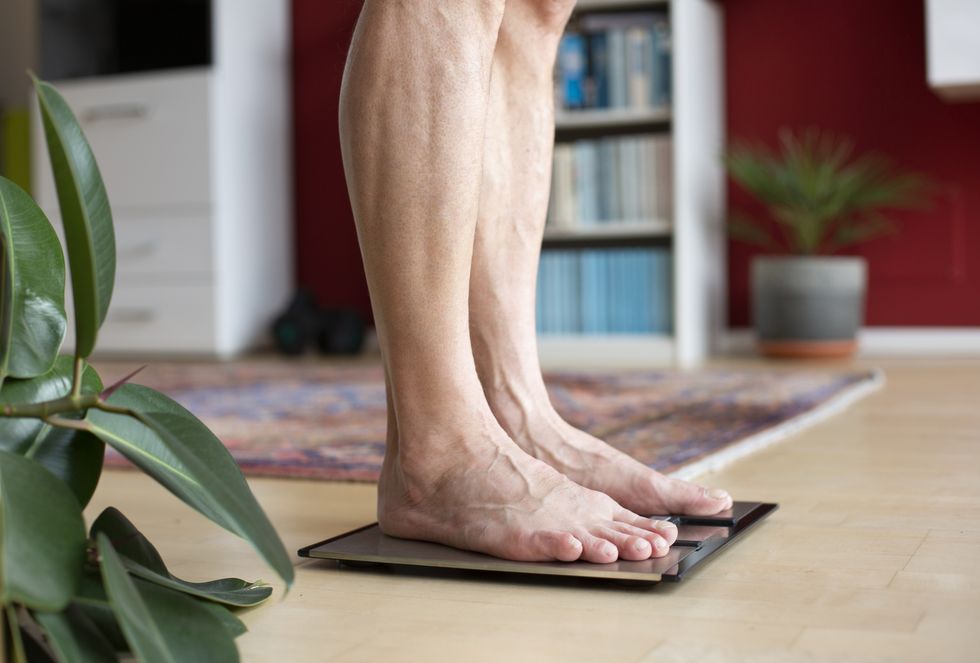
How fast can I safely lose weight?
As we touched on above, to ensure sustainable, healthy weight loss, most people don’t want to lose more than two pounds a week.
“Rapid weight loss is not recommended, as losing more than two pounds in a week can cause muscle loss and increase the risk of gout attacks and liver scarring,” says Routhenstein.
Is there a difference between fat loss and weight loss?
Not all weight loss is fat loss .
Fat loss refers to a decrease in body fat mass specifically, while weight loss encompasses any reduction in overall body weight, including water weight and muscle mass, says Routhenstein. “Prioritizing fat loss through healthy lifestyle changes is preferred over simple weight loss for improved body composition and overall health."
The key concept here is zooming in on long-term fat loss over weight loss . It's essential to focus on sustainable fat loss rather than simply chasing a lower number on the scale since preserving lean muscle mass will promote overall health, says Ma. To avoid losing muscle mass while losing weight, prioritize strength training and keep up your protein intake.
How do I maintain my weight loss?
Maintenance requires ongoing adherence to the healthy eating habits you participated in while you were losing weight and participating in regular physical activity, and whatever other lifestyle modifications you utilized—like limiting alcohol and avoiding cigarettes and other drugs, Ma says. “It's a lifelong commitment to health and well-being and is often considered the hardest part about one’s weight loss journey, emphasizing sustainable habits rather than short-term fixes.”

.css-1fpt53b{height:1.25rem;}@media(max-width: 48rem){.css-1fpt53b{overflow:unset;line-height:1.25rem;}}@media(min-width: 48rem){.css-1fpt53b{line-height:1.25rem;}}.css-1fpt53b:before{background-color:#D2232E;color:#fff;margin-right:0.625rem;width:1.25rem;height:1.25rem;content:'';display:block;} Weight Loss
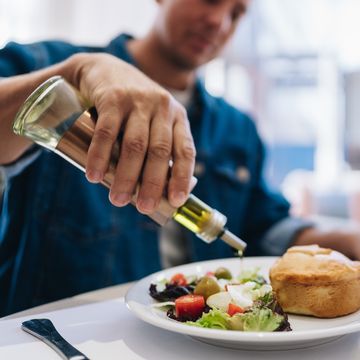
Is Algae Oil the New Fish Oil?
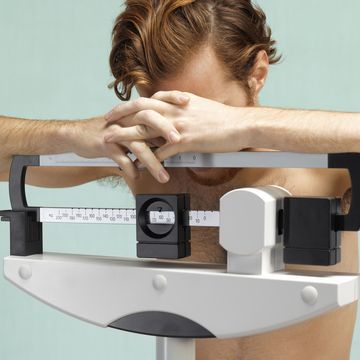
Why Does My Weight Fluctuate So Much?
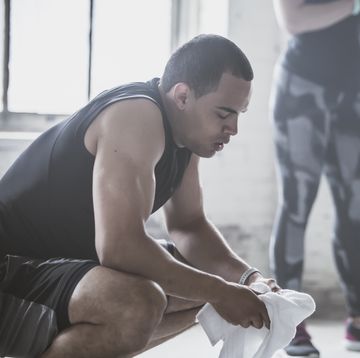
6 Signs You're Losing Muscle, Not Fat

Can Lemon Water Help You Lose Weight?

Stephen A. Smith Talks Weight Loss Transformation

Can Apple Cider Vinegar Help You Lose Weight?

How Long You Should Wait to Exercise After Eating

Tracy Morgan Jokes He Can 'Out-Eat' Ozempic

Uh, Is Kevin James Okay?
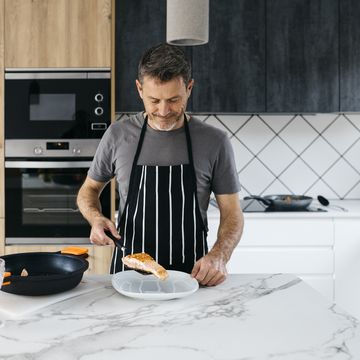
What to Know About the Atlantic Diet
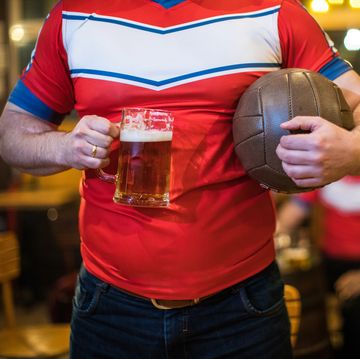
The Hazards of a Hard Beer Belly
How to Stay Positive Through Every Stage of Your Weight-Loss Journey

Making the choice to commit to a weight-loss journey can be exciting, but it also comes with a fair amount of anxiety. Like with anything, change takes time. Having enough patience and self-confidence to stay the course — even with setbacks and roadblocks along the way — is tough.
Advertisement
But keeping a positive attitude is vital to your success, says certified nutrition specialist and trainer Tara Allen, RN . "When we are feeling good — confident, hopeful, happy and energized — we are able to make the decisions that will serve us and our goals," she says. "These decisions fuel momentum and further success. On the other hand, when we're feeling down, our brain will seek out comfort and pleasure by way of cravings for junk food and excuses to skip your workout and hang on the couch instead."
Video of the Day
Read more: Why BMI Isn't Always the Best Measure of Body Composition — and What to Use Instead
No matter the milestone you're at on your own path to improved health, there are always ways to boost your mental energy. Here, health experts share their best advice for shifting your perspective to the brighter side — and keeping it there.
The Very First Day
Maybe it was a recent photo where you didn't even recognize yourself anymore. Or perhaps, you realized you can't keep up with your children and you want to be present for their lives. Whatever the incentive to finally tackle weight loss, be proud of yourself for making the decision to improve your health.
Being overweight could trigger medical problems down the road, such as hypertension, diabetes, osteoarthritis, heart disease and stroke, according to John Chuback, MD, board-certified cardiovascular surgeon and author. Committing to losing weight is you taking a step in the right direction, he says.
If you have those first-day jitters, don't give yourself too hard of a time. It's normal to feel nervous. You can begin the process by setting your purpose and goal, right from the start, says Dr. Chuback. This could be a tangible goal about the number of pounds you want to lose, for example.
"Decide right from the beginning that you are not going to play a game of Russian roulette with your life," he says. "Remember, this process all begins in your mind. Make a decision, set smart goals and aim to achieve a normal weight. Don't falter until your goal is accomplished."
The End of the First Week
On Sunday, you meal prepped like a boss. On Monday, you didn't give a second thought to eating an apple instead of a candy bar. By Friday, you can taste the weekend … and it tastes a lot like pizza.
Most people will start to see a bit of change within a week, but come the weekend, you'll likely feel temptation, says Herman Williams, MD , executive coach and author of Clear: Living the Life You Didn't Dream Of . Once you make it through seven consecutive days, Dr. Williams says you're 50 percent more likely to make this new routine a habit.
Read more: 10 Daily Habits to Increase Your Productivity
Don't diminish your progress by setting yourself back with a binge session or skipping workouts. Individuals who have adopted a healthy lifestyle don't change their eating habits come Saturday, but rather they know the importance of consistency, says personal trainer and nutrition coach Tara Garrison .
"Build self-trust by keeping your weekend on point. Nourish your body with self-love foods, no matter what day it is," she advises. "Take pride in knowing you don't change your internal decisions because of your outside environment, and watch your self-esteem flourish."
At the End of 30 Days
By now, a whole month has come and gone, and you may have even entered a new season. Hitting 30 days of committed efforts to lose weight can evoke different emotions, depending on what the scale says back to you. You may feel motivated to continue or bummed that you're not seeing different results.
At this point, certified personal trainer Jill McKay suggests taking a breath, remembering your larger goal and thinking about other improvements that are worth noting. Ask yourself simple questions: How do your jeans fit? How fast are you climbing stairs? Does carrying groceries feel easier?
"It can be a frustrating time of feeling like you are working hard, but not seeing the results you wish to see. Patience is key here," McKay says. "Change takes time, often far longer than we care to admit, which is why so many people give up. Stay the course, keep going and celebrate the good habits."
When You Hit Your First Goal
When you conquer that first goal — whether it's losing 5 percent of your body weight or fitting in an old pair of jeans — you'll feel empowered, strong and resilient. Make sure you take the time to celebrate, says McKay. Maybe that involves buying a pack of workout classes you've been thinking about or splurging on a new sweatshirt. "The money is worth it," she says. "You're worth it."
A word of caution: Make healthy decisions when you're celebrating, as to not derail all of your hard work. "If you allow yourself to 'slip' more and more frequently, you are more likely to revert to old habits," she says. "Enjoy the success and continue to make good choices."
The Moment You're Tempted to Stray
No one is perfect. If you struggle with moments of indecision, Garrison recommends visualizing yourself 10 minutes into the future. In this moment, you've consumed whatever it was that you were craving . Ask yourself: How do you feel? If you feel fine and like it was worth it, then go ahead and indulge she says. But if you feel disappointed or annoyed — take a deep breath, drink some water and let it pass.
Read more: Recommended Daily Caloric Intake for Weight Loss
Remember that you're allowed to eat anything you want to, says Allen. "Remind yourself that you get to choose what you want right now or what you want most. Be gentle with yourself," she continues. "If you're mostly choosing foods that will fuel your body well, with a little wiggle room for foods that will fuel your soul — or taste buds — you will be more likely to keep up this journey for the long haul."
Instead of beating yourself up after polishing off a bag of chips or sleeping in instead of heading to the gym, McKay recommends that you focus on times that you've made positive choices. With her clients, she suggests using an urge jar. Each time you have the desire to give in to a temptation but instead stick to your plan, place something inside the jar like a marble or — better yet — a few quarters. This will serve as a visual reminder of the actual strides you are making toward your goal.
When You Feel Like You’ve Hit a Plateau
Plateaus can be super demotivating, especially when you feel like you're doing everything right. Instead of seeing this as a deal breaker or roadblock, certified fitness coach Sunny Biggy suggests taking the opportunity dig deeper into your routine and habits.
Read more: 10 Tips to Push Past a Weight-Loss Plateau
"Sit down with an expert to evaluate your diet," he suggests, adding that now is a great time to take a look at your exercise, sleep and water consumption habits, too. "They may encourage you to be creative with your carbs and proteins, which can kick or reboot your metabolism into high gear."
McKay also urges anyone in a plateau stage to remember that there is no "normal" when it comes to meeting health goals. "Your genetics, diet history, workout history, body composition and attitude all contribute to weight loss," she says. "This is often when we compare ourselves to others, wondering why they may see success over us. Your body will adjust. Continue with all the good small changes you've made to this point and be patient."
Report an Issue
Screenshot loading...
How I Lost Weight (More Importantly: How I Got Healthier!)
Here are a few things that worked for me!
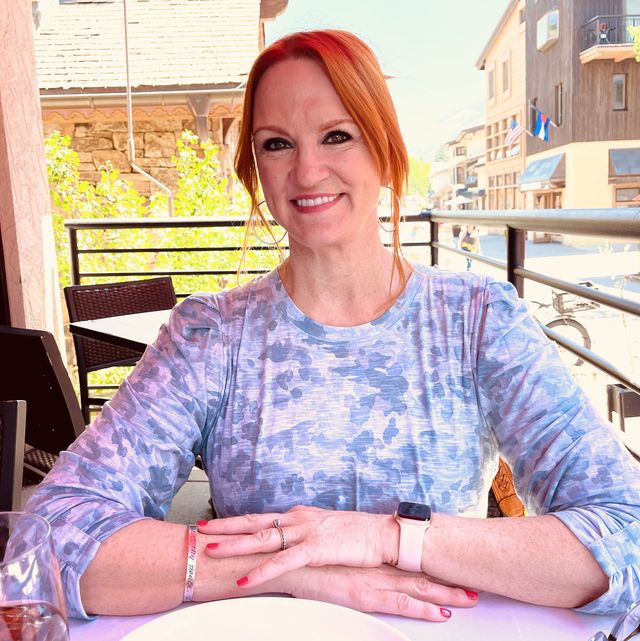
Every item on this page was chosen by a The Pioneer Woman editor. We may earn commission on some of the items you choose to buy.
(Written in June 2021) I've gotten a few questions lately about how I've lost weight over the past few months, so I thought I'd write a post! I'm writing this not as a self-celebration (since it's still very recent, and since I'm still working on it), but (hopefully) as inspiration—because as a 52-year-old lover of food and avoider of exercise, I just really want to share what worked for me.
First, I can't emphasize this enough: Everything I'm about to lay out worked for me, and if any of it helps you or inspires you, that's wonderful. But don't take it as gospel, and definitely talk to your doctor before starting anything new. You know your bod and yourself better than anyone!
Second, "skinny" has not been my primary goal. Though I had gained considerable weight over the past three years and I definitely wanted to slim down for Alex's wedding in May, what motivated me the most was just wanting to feel better and have more energy. In January, just before I bit the bullet and took the leap, I was tired, puffy, and desperate (I will write about my rock bottom sometime; it's quite a story)—and I knew I shouldn't be feeling that way. So while the eighties child in me does not necessarily bristle if someone occasionally says an encouraging "You look thinner!" or "You've lost weight!" I mostly just think about how much better I feel every day and feel grateful that I've made it over the hump.
What I did not do.
To begin, here's what I did NOT do to lose weight. I'm not criticizing any of the following, just listing the methods I didn't employ since they are often used:
I did not do Keto. I've tried it before, and it never worked after the initial 10-15 pounds. Plus, it made me dread avocados, which I always loved.
I did not do Intermittent Fasting. I've tried it before, and it caused me to gorge during my eating window. Since calories matter, this didn't work for me.
I did not buy specialty diet foods. I wanted to eat real food, the food I eat in my household, the food I cook for my family. Packaged foods can really be great in many cases; I just knew it wasn't right for me.
I did not use a trainer. (Unless you count Ladd! More on this below.)
I did not join a weight loss program. Now, I do have friends for whom Weight Watchers, Noom, and other programs have worked amazingly well, with fantastic results—so they are definitely worth looking into! I just know myself and my history, and I know I am not good with programs, logging, checking in, and so forth. I resist meetings as a rule. Ha. (Don't be like me.)
(Updated March 2024) I did not take "weight loss gummies" or other supplements. As many of you know, there were false articles/ads circulated around Facebook that suggested I was selling and using keto gummies, cbd gummies, and/or weight loss gummies. This is part of a "celebrity endorsement fraud" scheme on social media, which uses images of public figures (from Dr. Phil to Trisha Yearwood to Oprah) to scam folks out of money. It's one of the worst things about Facebook (which does not do a very good job of preventing these fraudulent ads) and not only does it rob people of money, it also falsely suggests a gummy/supplement can result in weight loss. These entities are definitely on Santa's naughty list for life.
(Updated March 2024) I did not take Ozempic, Wegovy, or similar medications. I know this has been a big topic in recent years, so I thought I'd add this paragraph. I support anyone who has success using the above medications. I know they have been an absolute godsend for so many people; I have friends who've experienced incredible results. For me, the simple, boring truth is that when I set out to lose weight in January of 2021, I had never heard of that class of drugs. And to be honest, if I had heard of them and had seen all the results that are out there, I might have been tempted to try them. But I simply didn't know those drugs existed then, so I dove in using all the methods below. Today, even though I have gained a few pounds up and down, I still have not chosen that option---for various reasons I'll write about in my upcoming update---but you'll never hear a second of judgment from me about people who choose that direction!

What I did.
So here's how I did it, and this list is in no particular order. I just wanted to number the items so you'd see that I really tackled this from a bunch of different directions. I knew I had to hit it from all sides, because I didn't want to put all my eggs (egg whites?) in one basket, and I wanted to get this show on the road.
1. I ate fewer calories.
"Calories in, calories out." We've all heard it preached, but I have absolutely seen that science play out in real time during the past few months. I tried to achieve a calorie deficit most days, which means I expended more calories (through exercise and just basic daily activity) than my body required to maintain my then-weight. I used online calculators to get a rough idea of what that weight maintenance calorie count might be, (though it's only a general rule), then I tried to undershoot that number on most days. I counted the calories of the things I ate every day (using websites like FatSecret.com or CalorieKing.com) and wrote each item down to get a daily total.
Counting my calories was nothing short of eye opening, and for me it was essential. I'd completely lost track of the calories I was consuming on a daily basis, so it was very helpful to get a handle on what I was looking at. I could tell if it was working by whether I was losing weight over time, and adjusted up or down naturally as I went.
2. I weighed my food.
In order to be as precise as possible with the calories I was eating, I used a digital food scale to weigh my food. Measuring food in grams was much more effective and eye opening to me than just measuring a cup or a pound. And speaking of eye opening—it really woke me up to the portions I had grown accustomed to eating! As with calories, I had completely lost sight of the volume I was eating—so it was an education in those first few weeks.
Note: I still ate good food. I just ate less of it, and I valued the calories more and made sure I ate things that offered more nutritional bang for the buck. And today, while I still weigh food occasionally if I'm curious or unsure, I'm not as meticulous as I was since I now have an overall sense of portion sizes and corresponding (general) calorie count.
3. I exercised.
This was all about "calories out" but it was also about just wanting to move my bod more and not feel so out of shape. I made exercise a regular part of my day, whether I walked with the dogs or did the rowing machine (which is in our living room!). I learned that making time each day to exercise simply had to be done—because, just like having a baby, there's never a good time. I'd gotten so accustomed to excusing myself from working out because of my work schedule or travel schedule...but during the past few months, I just chose to be late on a deadline or put off work until the next day so that exercise could happen. It was a simple shift in mindset, but it was important!

As for what exercise I did: I walked 2 to 3 miles, or did the rowing machine, or did Pilates—but not with traditional Pilates machines! I used to do a floor version of Pilates (Winsor Pilates from the early 2000's, can I get an amen?) and I still remember the exercises, crazy enough. So for the rower and Pilates, I was able to do it in the house, usually while Ladd and I were watching a spy thriller or some other weird movie. Whatever exercise I do has to happen on the ranch, because I don't like to go places. I exercised 6 days a week, sometimes twice a day (morning walk, evening rowing machine), sometimes just once.
4. I built muscle.
So here was the kicker: I asked Ladd, "How do I build more muscle, anyway?" I assumed it was just a matter of doing more repetitions with my hand weights to make my biceps and triceps stronger. But Ladd responded, "If you really want to build more muscle in order to burn calories, you need to build them in your legs and your butt—since those muscles are much bigger than your arm muscles." It made perfect sense. I was 52 years old and had never once considered that concept.
Also, I had no idea how to build muscle in my legs and my butt! So Ladd, while stuck in his neck brace, by the way, showed me how to do lunges, squats, straight-leg deadlifts, and calf raises. And guess what? I was absolutely pitiful when I started. I am a former ballerina but literally could not do a proper lunge without toppling over. I had zero strength in my lower body and my legs trembled and gave out. But I still did it, about four days a week to start, and laughed at my uncoordinated clumsiness every time. And I couldn't walk for the first few days! I wailed and complained, but since I had a husband with a broken neck, I mostly kept it to myself.
Today, a few months later, I am just now able to do a real lunge all the way to the ground. I can do squats! (And I'm not talking lots of weight, either. I usually use either 5 pound or 8 pound hand weights. And started using 5 pound ankle weights when I do Pilates.) It's exciting! And most importantly, I now have palpable muscles in my legs and my butt. It feels good (as someone who isn't a spring chicken) to actually see and feel new muscles in my bod. I thought I was washed up and on the road to nowhere, muscle tone wise. But now, poor Ladd is actually tired of me asking him to squeeze my thighs and comment on their current firmness and taking his hand and putting it on my glute so he can feel me flex it.
Actually, I don't think he's tired of it.
5. I ate more protein.
Another piece of information I gleaned during my weight loss plateau research was that many people successfully push through by upping the daily percentage of protein they consume. It made sense, though admittedly, I'd never thought to track my protein consumption before. Since I was already tracking my calories, it wasn't a stretch to also make note of the protein of the things I was eating on a daily basis. Turns out that on a typical day, I had been landing at around 15% to 20% of my calories from protein...so I pivoted and steered my eating so that I was around 30% to 40% protein. It worked!
Long story short: Between the muscle building and the protein increase, I pushed through my plateau just a few days later (and another plateau a few weeks later)...and those two factors alone really changed the game for me going forward. Eating more protein also made me feel more satisfied (and gave me more energy), so it was a good move for many reasons.
My favorite high-protein foods that got me through: Low fat plain Greek yogurt (add a little sugar free vanilla syrup for a sweet snack, or use it as the basis for veggie dips), low fat cottage cheese, lean beef, chicken, turkey, salmon, cod, egg whites (I'm obsessed), raw almonds, 1% milk, Swiss cheese, homemade protein balls (recipe coming soon)...I love it all! Then to fill in the blanks, lots of spinach (raw or cooked), an apple a day, kale, carrots...the good stuff!
6. I ate less sugar.
This is a no-brainer, but it all boiled down to the eternal calorie-counting question: "If I am eating X calories today, do I want to blow 300 of those calories on a doughnut? Or do I instead want to spend 50 of them on a piece of good dark chocolate to get my fix, then keep eating things with more nutritive content?" (This is basically how Weight Watchers works, but in a points system.) So most days, I made choices that didn't involve a lot of sugar. Over time, it really resulted in quite a reduction of wasted calories.

All of that said, were there days I gave in and had a piece of cake? Yes! I'm The Pioneer Woman and I love food! Ha. But the piece of cake was the size of Rhode Island instead of Texas, and it wasn't an everyday thing.
7. I drank no alcohol.
This was multi-faceted. First, alcohol has calories. Second, I wanted to give my body a rest from booze as I moved into incorporating more exercise in my daily life. Third (this was handy!), Lent happened to fall during this time period, and since alcohol is usually the thing I give up, I got to have an added motivation there. Bottom line, I didn't drink a sip of alcohol for over four months.

I'm back to having an occasional grown-up beverage again, but instead of two glasses of very caloric red wine or a sugary frozen cocktail, I'm opting for a Ranch Water, which my good friend Eddie Jackson taught me about: A little clear Casamigos tequila, fresh squeezed lime (I do like half a lime!), and cold Topo Chico sparkling mineral water, which is super carbonated. All over ice! Tequila has the least amount of calories of any booze, and the mineral water allows me to tell myself I'm hydrating. Ha.
8. I used an app called Happy Scale.
As I said above, I am not into logging things and having to participate too much in programs. I spend enough time texting with my kids and posting on social media (and writing on my computer) to have to spend even more time tracking my eating and exercising. But I somehow happened upon the Happy Scale app , and let me tell you that it was a GAME CHANGER in terms of motivating me to keep going. I will write a whole post about Happy Scale soon, but all it is is a weight loss tracker. It doesn't tell you how to lose weight, and it doesn't track calories, exercise, or anything other than your daily weigh-in.
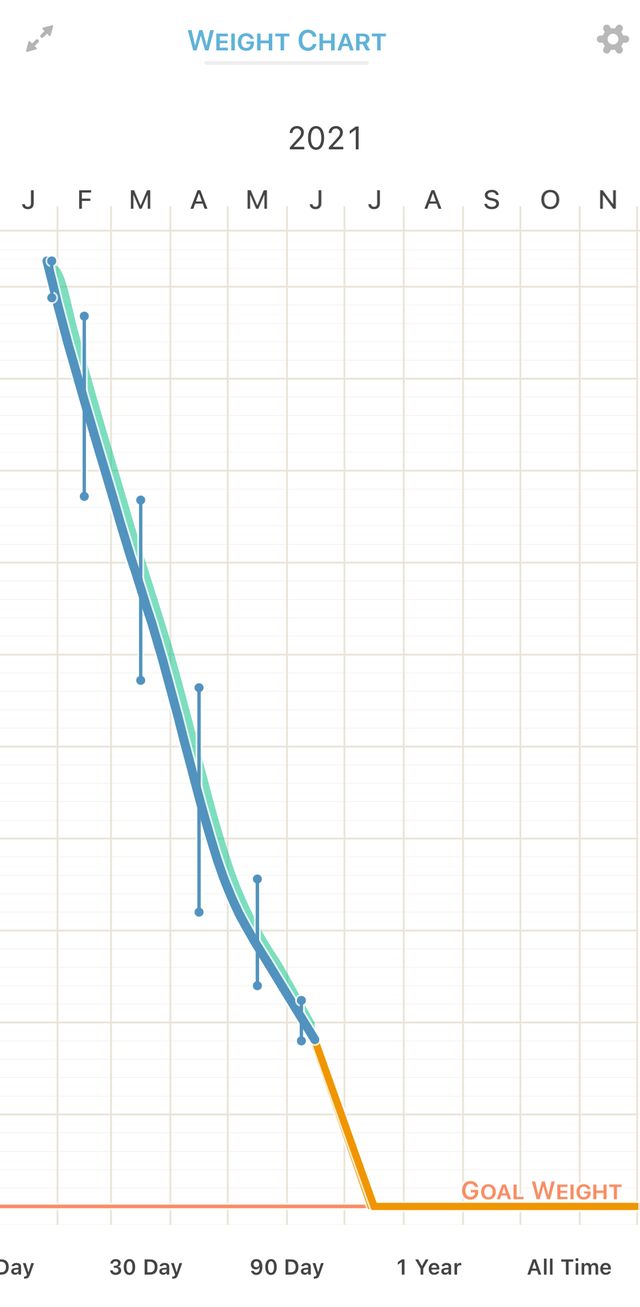
But what it does, after just a few days of daily weight logs, is keep you posted on your progress: your current rate of weight loss, your overall rate of weight loss, and how that trend will play out over time. It is amazing in its simplicity, but it was the magic bullet for me because it takes away the occasional frustration of natural ebbs and flows of weight loss by giving you your moving average weight along with your literal weight. So if I had a day where I was up half a pound or had a couple of days where the scale didn't budge, it helped me visualize that the overall trend was still moving in the right direction.
I'm a huge Happy Scale fan! It's not ideal if you just want to lose five or ten pounds, but since I had a larger target to hit, it was the right kind of tool for me. And guess what? The weight Happy Scale told me I'd weigh on the wedding date of May 1 (back in January when it started calculating my daily weights) was exactly— exactly —what I weighed on May 1. Not magic, because it involved commitment and work on my part...but a celebration of what happens when you stick to a good, steady, sensible plan. And again—it wasn't about the exact number. But since my weight loss was a reflection of my body feeling better and better, it was one of the gauges I used.
9. I switched to a standing desk.
I was writing a cookbook during this timeframe, and the sheer amount of time I had to be on the computer at my desk was shocking. I knew that would translate to a lot of sitting, so I dragged an old standing desk out of our mud room and stuck it squarely in our living room. It made a huge difference, and what I found more than anything was that when you are working in a standing position, you are a lot more mobile and prone to step away and take breaks—since you don't have the hurdle of having to grunt and stand up from a seated position, haha. So if I'd been standing and working awhile and I felt like moving around, I'd just leave my desk and go outside, go get water, go take a short walk. It helped shave off the cumulative sedentary nature of a desk job, and just helped my overall motivation and movement. (Just tell your boss you're on a wellness journey! That's why you weren't at your desk when your computer chimed! Ha)
(Note: You don't have to buy a standing desk. There are tutorials online for transforming a regular desk or table, or you can always use the kitchen counter!

10. I'm still working on it!
As of today, I've lost 43 pounds. (Update March 2024: I went on to lose over 50 pounds total; will write about that this week too, as I've gained a few back!) I hesitate to even say that number, because for me, the way I feel today, it isn't about the weight loss. I definitely needed to lose weight for my own preference based on where I thought I should be, but it's more about how I feel after a few months of regular exercise, more moving, and more mindful eating. Feeling good is really all that matters, and because of that, the weigh-ins are becoming less and less important to me. I'll keep weighing in every day to have all the information I need going forward, but the number isn't what I'm paying attention to now.

I still love food, I still cook the same food for my family and me, and I'm a real person who realizes I'm always going to be prone to weigh-in ups and downs. But my experiences over the past few months have equipped me with real, doable tools that I feel like I'll be able to whip out whenever things get off track in the coming months and years.

It only took me 52 years to figure it out, but that's okay! (Update March 2024: I'm 55 now! Ha! Update coming soon...)
I hope this helps you, whether in big ways or small. Remember that feeling good, realistic goals, being healthy, and having fun is the way to go!
.css-kddnhp:before{background-image:radial-gradient(circle at 15px 0, #44ABA5 9px, #44ABA5 15px, rgba(255,255,255,0) 16px);background-repeat:repeat-x;content:'';display:block;height:2rem;margin-bottom:0.625rem;}@media(max-width: 48rem){.css-kddnhp:before{margin-left:-0.99rem;width:100vw;-webkit-background-size:30px 16px;background-size:30px 16px;}}@media(min-width: 40.625rem){.css-kddnhp:before{margin-left:0;width:100%;-webkit-background-size:30.659px 16px;background-size:30.659px 16px;}} Shop Some of Ree's Workout Gear

Lululemon Wunder Under High-Rise Tight
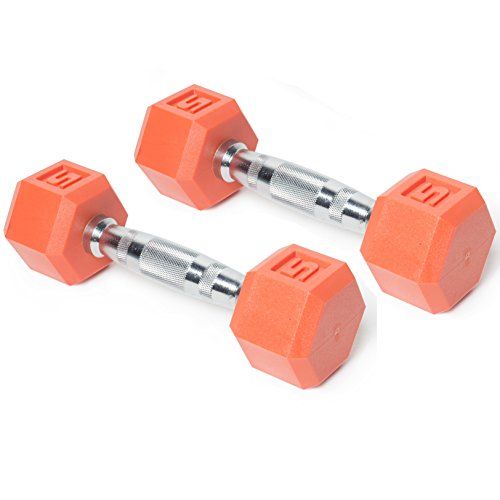
CAP Barbell Color Coated Hex Dumbbell, 5-Pound
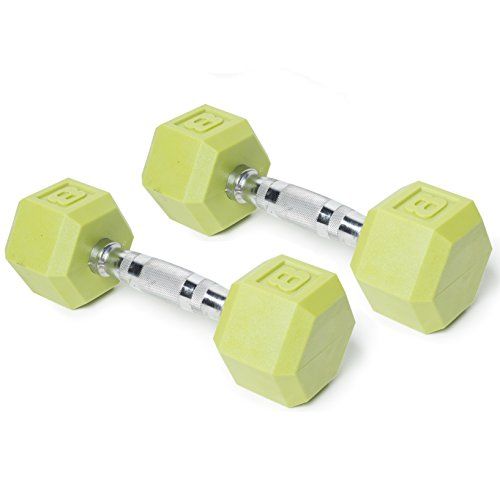
CAP Barbell Color Coated Hex Dumbbell, 8-Pound

ON Cloud Trainers

I’m a desperate housewife, I live in the country, and I’m obsessed with butter, Basset Hounds, and Ethel Merman. Welcome to my frontier!

.css-l114lb:before{background-repeat:no-repeat;-webkit-background-size:contain;background-size:contain;content:'';display:block;margin:auto auto 0.25rem;}.loaded .css-l114lb:before{background-image:url('/_assets/design-tokens/thepioneerwoman/static/images/butterfly.svg');}@media(max-width: 48rem){.css-l114lb:before{width:2.039rem;height:1.616rem;}}@media(min-width: 48rem){.css-l114lb:before{width:2.5rem;height:1.9rem;}} Confessions

Ree's Fun Girls' Trip!

Ree's Four Wedding Dates!

Ree and the Kids in Colorado

Ree and Ladd Got a Hot Tub!

What's Ree Getting Ladd for Christmas?
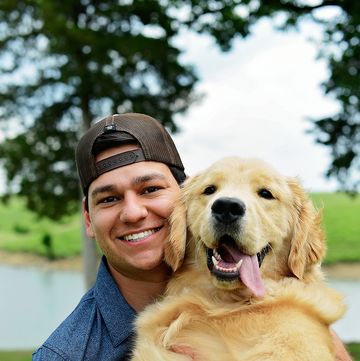
Ree Drummond's Thanksgiving Guest List for 2023

My New Cookbook Launches Today!

Here's Ree's Cookbook Tour Schedule!
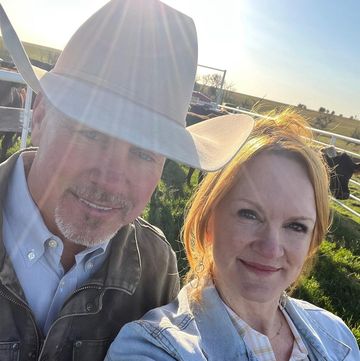
Ree Reflects On Her Now Empty Nest

Ree and Ladd Drop Todd at College
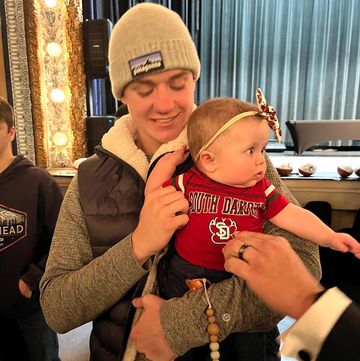
Ree Has an Empty Nest Question
- Weight Management
- Nutrition Facts
- Nutrition Basics
- Meal Delivery Services
- Fitness Gear
- Apparel & Accessories
- Recipe Nutrition Calculator
- Weight Loss Calorie Goal
- BMI Calculator
- Body Fat Percentage Calculator
- Calories Burned by Activity
- Daily Calories Burned
- Pace Calculator
- Editorial Process
- Meet Our Review Board
Smart Foods to Eat When You're Trying to Lose Weight
What to Eat When You're Trying to Lose Weight
Malia Frey is a weight loss expert, certified health coach, weight management specialist, personal trainer, and fitness nutrition specialist.
:max_bytes(150000):strip_icc():format(webp)/Malia-Frey_1000-2f7768d8777a4ebbac39d628bc31b714.jpg)
Melissa Rifkin is a Connecticut-based registered dietitian with over 15 years of experience working in the clinical setting.
:max_bytes(150000):strip_icc():format(webp)/unnamed-38aa6879f8b546c3a3ba36ec48bda560.jpeg)
What are the foods you should consume when trying to lose weight? Use this list of important nutrients and types of foods to look for when trying to slim down. Find out which foods are likely to fill you up, provide essential nutrition, and keep you satisfied during your weight loss journey.
List of Foods to Eat When Trying to Lose Weight
You can eat any foods you like when trying to lose weight, since so long as you create a calorie deficit, you can lose weight. There are no specific foods that will automatically cause or stop weight loss, instead, it's about energy balance. However, there are some foods that make energy balance easier by filling you up and energizing you for activity.
- Lean protein
- Fiber rich foods
- Fruits and vegetables
- Smaller portions of your favorite foods
Lean Protein
Verywell / Alexandra Shytsman
Foods with protein help you in several different ways when you're trying to lose weight. First, protein will help you to maintain muscle mass as you lose fat. And if you start a strength-training program when you're trying to lose weight, protein-rich foods help you to build muscle.
Protein foods are also satisfying to eat. Many people prefer to enjoy a traditional meat and potatoes meal from time to time during the dieting process. It might help you to feel less deprived. While you may not be able to eat the same kind of indulgent dinner that you enjoyed before weight loss, eating a lean protein with vegetables may help you to get the same enjoyment.
Lastly, protein foods help you to burn (slightly) more calories due to the thermic effect of food . The thermic effect of food (TEF) contributes to your daily metabolism—or the number of calories you burn each day . Your body requires energy (calories) to chew, digest, and process the food that you eat. Protein requires more energy to process than other foods.
So which protein-rich foods are best? Look for choices that are naturally low in saturated fat and calories, those that are portion-controlled, and foods that you enjoy.
- Cottage cheese
- Greek or traditional yogurt
- Ground or sliced lean turkey
- Lean cuts of beef
- Lean cuts of pork
- Skinless chicken breast
If you have a difficult time getting enough protein in your diet during weight loss, you can also make a smoothie with a protein powder supplement .
Fiber-Rich Foods
You'll be able to manage cravings better if you eat foods with more fiber . On this list you'll find delicious foods that help you to feel full longer after eating so you consume fewer calories. Most of these foods also provide other nutritional benefits that you'll enjoy during the weight loss process, like vitamins and minerals.
Fill your shopping cart with some of these foods.
- Chickpeas or hummus
- Plain popcorn
- Whole wheat bread
- Whole wheat crackers
- Whole wheat pita or tortillas
Keep your fridge and pantry stocked with some of these staples to keep your hunger at bay.
Fruits and Vegetables
It's easy to find "diet foods" at your local super market. You'll find fat-free foods , low-calorie foods , and foods that advertise other health claims on the label. But some of these foods are not necessarily good for everyone who is trying to lose weight.
For example, some fat-free foods are higher in sugar than their full-fat versions. Some salad dressings, sauces, condiments and other foods remove fat but add back sugar and sodium to make up for lost taste/texture. They may not necessarily be lower in calories and if you are trying to reduce your sugar intake they can do more harm than good.
So should you avoid low-calorie foods? No! Just try to find foods that are naturally low in calories, such as fruits and vegetables. Consider some of these options.
- Blueberries
- Brussels sprouts
- Cauliflower
- Kale, arugula or other leafy greens
- Raspberries
Choosing these foods that are packed with vitamins and minerals will help you to get the nutrition you need when you are trying to slim down. You may also be able to save money as well. Those 100-calorie snack packs that you buy in the store are generally more expensive than 100-calorie snack packs you make at home with healthier foods.
Smaller Portions of Your Favorite Foods
Nutritious foods are always the best choice when you're trying to slim down. But sometimes you want more than whole grains, lean protein, and fresh fruits and veggies. If you're like most, you occasionally crave comfort foods like pasta, or chocolate.
If you're going to stay on your weight loss plan for the long-term, you may want to enjoy a treat or an indulgent snack from time to time. And there might also be times when you need to grab a quick bite on the go. Thankfully, there are ways to stick to your weight loss plan and still allow for certain convenience foods.
Consider any of these foods to eat when you're trying to lose weight.
- Lower-calorie snack bars
- Portion-controlled comfort foods
- Smoothies and other creamy blender foods
A Word From Verywell
Remember that when you choose foods to eat during weight loss, it's not only about calories. The foods you choose should fill you up, satisfy your desire for a savory meal, curb your cravings for sweets, and provide your body with good nutrition. Thankfully, it is possible to find these foods.
Print out this list of foods to eat when trying to lose weight. Use it to compile your weekly grocery list or take it with you to the market so you know which foods to consume and which foods to avoid for a successful weight loss experience.
Cava E, Yeat NC, Mittendorfer B. Preserving Healthy Muscle during Weight Loss . Adv Nutr . 2017;(8)3:511-519. doi:10.3945/an.116.014506
Pesta DH, Samuel VT. A high-protein diet for reducing body fat: mechanisms and possible caveats . Nutr Metab (Lond) . 2014;(11)1:53. doi:10.1186/1743-7075-11-53
US National Library of Medicine. Fiber .
McCaffrey D. The Science of Skinny: Start Understanding Your Body's Chemistry--and Stop Dieting Forever(Sixth Edition) . Da Capo Lifelong Books . 2012.
Centers for Disease Control and Prevention. Healthy eating for a healthy weight .
By Malia Frey, M.A., ACE-CHC, CPT Malia Frey is a weight loss expert, certified health coach, weight management specialist, personal trainer, and fitness nutrition specialist.
A .gov website belongs to an official government organization in the United States.
A lock ( ) or https:// means you've safely connected to the .gov website. Share sensitive information only on official, secure websites.
- About Healthy Growth and Weight
- Water and Healthier Drinks
- Healthy Eating for a Healthy Weight
- Steps for Losing Weight
- Tips for Physical Activity and Your Weight
- Tips for Parents and Caregivers
- External Resources
- Be Sugar Smart
- Rethink Your Drink
- If you want to lose weight, making a specific plan can help.
- Healthy weight loss involves a lifestyle with healthy eating patterns, regular physical activity, and stress management.
- The five steps on this page can help you get started.
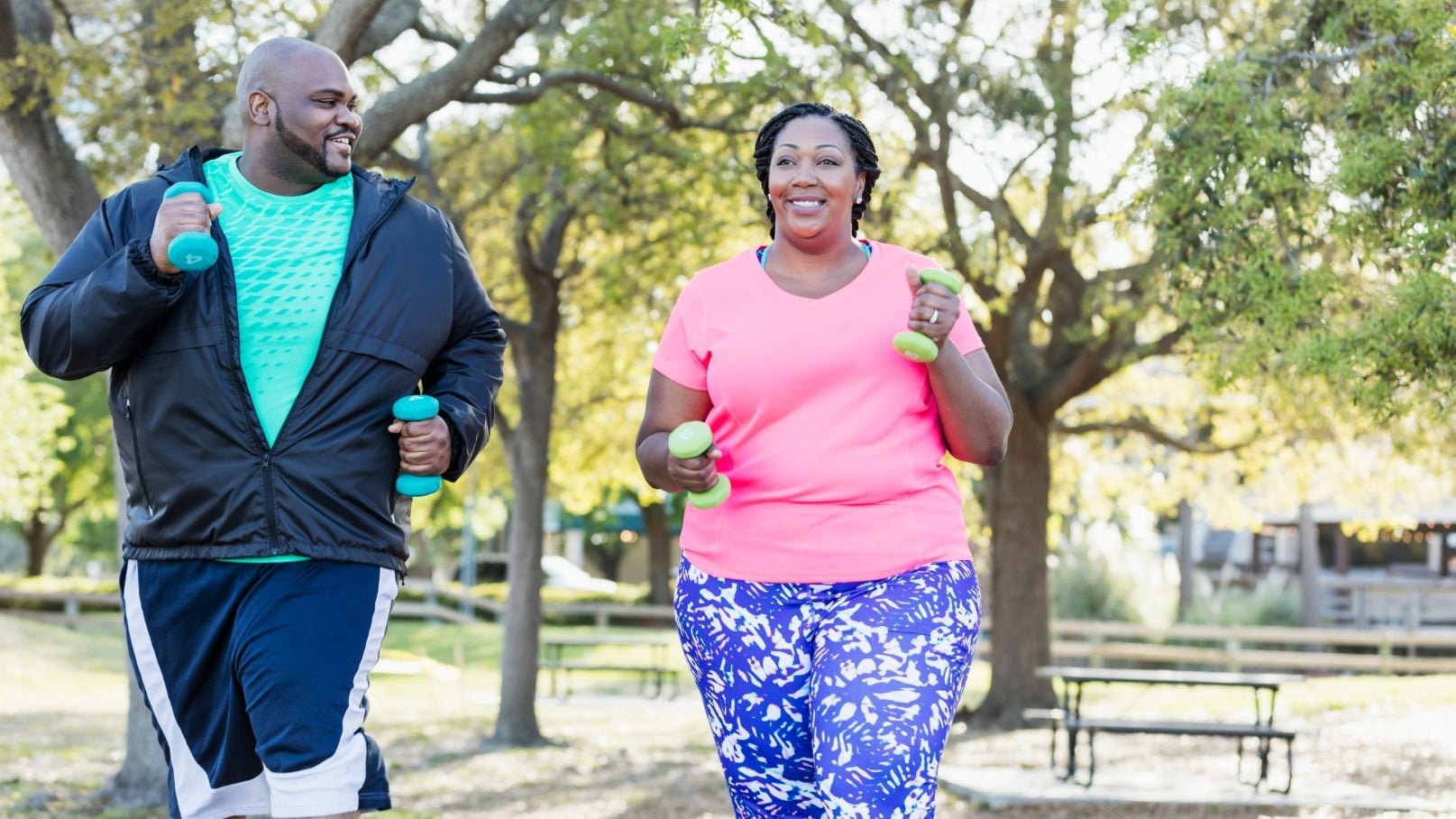
A lifestyle with good nutrition, regular physical activity, and stress management supports a healthy weight. People who lose weight at a gradual, steady pace—about 1 to 2 pounds a week—are more likely to keep the weight off than people who lose weight quickly.
Factors, such as sleep, medicines, medical conditions, and age can also affect weight management . If you're concerned about your weight or have questions about your medicines, talk with your health care provider.
If you are ready to get started, here are 5 steps.
Step 1: Make a commitment
Whether you have a family history of heart disease or want to feel better in your clothes, write down why you want to lose weight. Writing it down can confirm your commitment. Post your reasons in a place where they can be a daily reminder of why you want to make this change.
Even Modest Weight Loss Helps
Step 2: take stock of where you are.
Write down everything you consume for a few days in a food and beverage diary. Being more aware of what you eat and drink will help you avoid mindless consumption. Tracking physical activity , sleep, and emotions can also help you understand current habits and stressors. This can also help identify areas to start making changes.
Next, examine your lifestyle. Identify things that might pose challenges to your weight loss efforts. For example:
- Does your work schedule make it hard to be physically active?
- Do you eat sugary foods because that's what you buy for your kids?
- Do your coworkers bring high-calorie items, such as doughnuts, to the workplace?
Think through things you can do to help overcome these challenges.
If you have a chronic condition or a disability, ask your health care provider for resources to support a healthy weight. This may include referral to a registered dietitian, clinical or community programs, federally approved medications or devices, or surgery. Ask for a follow-up appointment to monitor changes in your weight or any related health conditions.
Step 3: Set realistic goals
Set short-term goals and reward your efforts along the way. Maybe your long-term goal is to lose 40 pounds and to control your high blood pressure. Short-term goals might include drinking water instead of sugary beverages, taking a 15-minute evening walk, or having a vegetable with supper.
Focus on two or three goals at a time. Effective goals are:
- Forgiving (less than perfect)
For example, "exercise more" is not specific. But "I will walk 15 minutes, 3 days a week for the first week," is specific and realistic.
Setting unrealistic goals, such as losing 20 pounds in 2 weeks, can leave you feeling defeated and frustrated.
Being realistic also means expecting occasional setbacks. When setbacks happen, get back on track as quickly as possible. Think about how to prevent setbacks in similar future situations.
Everyone is different. What works for someone else might not be right for you. To help you find what works for you, try a variety of activities, such as walking, swimming, tennis, or group exercise classes. See what you enjoy most and can fit into your life. These activities will be easier to stick with over the long term.
Step 4: Identify resources for information and support
Identify family members or friends who will support your weight loss efforts. Coworkers or neighbors with similar goals might share healthy recipes and plan group physical activities. It may help to join a weight-loss program or visit a health care professional, such as a nutrition or weight-loss specialist.
Step 5: Continually monitor your progress
Revisit your goals from Step 3 and evaluate your progress regularly. Decide which parts of your plan are working well and which parts need to be changed. Use this information to revise your goals and plan.
If you consistently meet a particular goal, add a new goal to help continue your pathway to success.
Reward yourself for your achievements! Recognize when you're meeting your goals and be proud of your progress. Use non-food rewards, such as a bouquet of fresh flowers, a sports outing with friends, or a relaxing bath. Rewards help keep you motivated on the path to better health.
Treatment for overweight and obesity Health care professionals can help you adopt lifestyle changes that may help you lose excess weight safely and keep it off over the long term.
Choosing a safe and successful weight-loss program How to choose a program that may help you lose weight safely and keep it off over time.
Prescription medications to treat overweight and obesity Combined with lifestyle and behavior changes, prescription medications help some people lose weight and maintain weight loss.
Bariatric surgery Weight-loss surgery, also known as bariatric surgery, is an operation that makes changes to the digestive system.
Body image Creating a positive body image through healthy eating habits.
Strategies for success Find resources to help you lose or gain weight safely and effectively.
Weight management for youth Address weight issues in children and teens with healthy guidelines, links to interactive and skill-building tools, and other resources.
What you should know about popular diets How to evaluate claims made by weight-loss products and diets. Find information to choose weight-loss strategies that are healthy, effective, and safe for you.
Food Assistance and Food Systems Resources
Healthy weight and growth.
Eating well and being physically active contribute to healthy growth in childhood and good health throughout life. See how to get started.
- Share full article
Advertisement
Supported by
When Did Everything Become a ‘Journey’?
Changing our hair, getting divorced, taking spa vacations — they’re not just things we do; they’re “journeys.” The quest for better health is the greatest journey of all.

By Lisa Miller
Drew Barrymore has been talking with Gayle King about her perimenopause “journey ,” and the soccer phenom Carli Lloyd has just divulged her fertility “journey .” By sharing her breast cancer story, Olivia Munn has said she hopes she will “help others find comfort, inspiration, and support on their own journey.” A recent interview with Anne Hathaway has been posted on Instagram with a headline highlighting her “ sobriety journey ,” and Kelly Clarkson has opened up about what Women’s Health calls her “ weight loss journey .” On TikTok, a zillion influencer-guides lead pilgrims on journeys through such ephemeral realms as faith, healing, grief, friendship, mastectomy, and therapy — often selling courses, supplements or eating plans as if they were talismans to help safeguard their path.
Listen to this article with reporter commentary
“Journey” has decisively taken its place in American speech. The word holds an upbeat utility these days, signaling struggle without darkness or detail, and expressing — in the broadest possible way — an individual’s experience of travails over time.
It’s often related to physical or mental health, but it can really be about anything: “Putting on your socks can be a journey of self-discovery,” said Beth Patton, who lives in Central Indiana and has relapsing polychondritis, an inflammatory disorder. In the chronic disease community, she said, “journey” is a debated word. “It’s a way to romanticize ordinary or unpleasant experiences, like, ‘Oh, this is something special and magical.’” Not everyone appreciates this, she said.
According to the linguistics professor Jesse Egbert at Northern Arizona University, the use of “journey” (the noun) has nearly doubled in American English since 1990, with the most frequent instances occurring online. Mining a new database of conversational American English he and colleagues are building, Egbert could show exactly how colloquial “journey” has become: One woman in Pennsylvania described her “journey to become a morning person,” while another, in Massachusetts, said she was “on a journey of trying to like fish.”
Egbert was able to further demonstrate how the word itself has undergone a transformative journey — what linguists call “semantic drift.” It wasn’t so long ago that Americans mostly used “journey” to mean a literal trip, whereas now it’s more popular as a metaphor. Egbert demonstrated this by searching the more than one billion words in a database called COCA for the nouns people put before “journey” to clarify what sort they’re on. Between 1990 and 2005, the most common modifier was “return,” followed by words like “ocean,” “train,” “mile,” “night,” “overland,” and “bus.”
But between 2006 and 2019, usage shifted. “Return” remains the most common noun modifier to journey, but now it’s followed closely by “faith,” “cancer,” and “life.” Among the top 25 nouns used to modify “journey” today are: “soul,” “adoption,” and “hair.”
In almost every language, “journey” has become a way to talk abstractly about outcomes, for good reason: According to what linguists call the “primary metaphor theory,” humans learn as babies crawling toward their toys that “‘purpose’ and ‘destination’ coincide,” said Elena Semino, a linguist at Lancaster University who specializes in metaphor. As we become able to accomplish our goals while sitting still (standardized tests! working from home!), ambition and travel diverge. Yet we continue to envision achievement as a matter of forward progress. This is why we say, “‘I know what I want, but I don’t know how to get there,’” Semino explained. “Or ‘I’m at a crossroads.’”
So it’s not surprising, perhaps, that as Americans started seeing good health as a desirable goal, achievable through their own actions and choices — and marketers encouraged these pursuits and commodified them — the words “journey” and “health” became inextricably linked. In 1898, C.W. Post wrote a pamphlet he called “The Road to Wellville,” which he attached to each box of his new product, Grape-Nuts. In 1926, the Postum Cereal Company republished the pamphlet as a small book , now with the subtitle, “A Personally Conducted Journey to the Land of Good Health by the Route of Right Living.”
The language (and business) of self-help so completely saturates culture, “it gets kind of hard to trace where a word started and where it came from,” said Jessica Lamb-Shapiro, author of “Promise Land: My Journey Through America’s Self-Help Culture.” Americans like to put an optimistic, brave spin on suffering, and “journey” seeped in because, Lamb-Shapiro speculated, it’s bland enough to “tackle really difficult things,” yet positive enough to “make them palatable and tolerable.”
“Journey” had fully entered medical speak by the 2010s. Many cancer patients recoiled from the “battle” language traditionally used by doctors, as well as by friends and relatives. In “Illness as Metaphor,” Susan Sontag had noted back in 1978 that “every physician and every attentive patient is familiar with, if perhaps inured to, this military terminology.” But now, opposition to the notion of disease as an enemy combatant reached a crescendo. To reflexively call an experience of cancer a battle created “winners” and “losers,” where death or long suffering represented a failure — of will, strength, determination, diet, behavior, or outlook — on the part of the patient.
Many patients “detest” the military metaphor, Robert Miller conceded in Oncology Times in 2010. Knowing this, Miller, then a breast cancer oncologist affiliated with Johns Hopkins, said he struggled to find the right words in composing a condolence note to a patient’s spouse. “I welcome suggestions,” he wrote.
“Journey” seemed less judgmental, more neutral. In Britain, the National Health Service had started to almost exclusively use “journey” language in reference to cancer (treatments were “pathways”). Semino, the metaphor expert whose father had died of cancer at a time when patients’ diagnoses were hidden from them, wanted to examine how patients talked about it — and whether that language caused them harm. In a research paper Semino published with colleagues in 2015, she looked at how patients talked about their cancer on forums online and found that they still used “battle” as often as they did “journey,” and that “journey” could be disempowering, as well.
For some people, talking about cancer as a “journey” gave them a sense of control and camaraderie — buddies traveling the same path — but others used the term to convey their exhaustion. Having cancer “is like trying to drive a coach and horses uphill with no back wheels on the coach,” one man wrote. Patients used “journey” to describe just how passive they felt or how reluctant to bear the burden of their disease. Separately, patients have told Semino how much they hate the word “journey,” saying it trivializes their experience, that it’s clichéd.
But it was too late: The metaphor already was everywhere. In 2014, Anna Wintour was asked which word she would like to banish from the fashion lexicon and she said, “journey.” The following year, Yolanda Foster, the mother of Gigi and Bella Hadid, told People magazine that while she was on her Lyme disease journey, two of her children were afflicted, too. Medical journals and government publications began describing insomnia , the effort to achieve health-care reform , diabetes , and the development of RSV vaccines as a journey. The term “healing journey,” in use since at least the mid-2010s, blew up around 2021. The phrase in news media referenced the experience of cancer , celebrity weight loss , trafficking of Indigenous children , Sean Combs’s creative process , spa vacations , amputation , and better sex .
On the Reddit channel Chronic Illness, one poster eloquently fumed that persistent sickness is not a journey. “It’s endless, pointless and repetitive. There’s no new ground to gain here.” The cultural insistence on illness as a journey, from which a traveler can learn useful, or even life-changing lessons, becomes something to “disassociate from, survive, endure.” It “causes social isolation.”
Although she concedes its downsides, Stephanie Swanson likes to think of herself as on a journey. Swanson, who is 37 and lives in Kansas City, was an engineer by training, with three young children, a career and a sideline as an aerialist, when she got long Covid in the summer of 2022. The things that had made her successful — her physical stamina, her ability to solve problems — evaporated. “I’ve had to give up my career, my hobbies, my physical abilities,” she said. “I’ve gained 30 pounds on my tiny dancer body. I’m doing the best I can with what I have.”
Swanson makes a distinction between “journey” and “trip”: The latter is circumscribed by a start, an end, and hotel and restaurant reservations along the way. She sees “journey” as a way to capture the arc of a whole life.
When she was running operations at a medical center at the University of Kansas, she always imagined slowing down to enjoy her kids more or to read a book, but “I felt like my head was going to explode.” Now Swanson has become a person who must rent a wheelchair for her upcoming trip to New York City, and she likes how “journey” accommodates all the challenging, unexpected circumstances she confronts. “To me, the word ‘journey’ resonates with choosing to be on a path of acceptance but not standing still,” she said. “I’m not giving up, but recognizing that this is the path I’m on.”
Ramani Durvasula uses “journey” advisedly. A clinical psychologist in Los Angeles who treats women in emotionally abusive relationships, she recognizes how “journey” has been “eye-rollingly cheapened” and has started to experiment with alternatives. She’s tried “process.” She’s tried “healing trajectory.” But she falls back on journey, because it, more than any other word, expresses the step-by-step, sometimes circular or backward nature of enduring something hard. “Arguably, a journey doesn’t have a destination,” she said. “Have you ever taken a hike in a loop? And you end up exactly where you parked your car?”
But Durvasula does object to the easy-breezy healing so many journey hashtags promote, what she calls the “post-sobriety, post-weight-loss, now-I’m-in-love-again-after-my-toxic-relationship” reels. Too many TikToks show the crying in the car then the cute party dress, skipping over the middle, when people feel ugly, angry, self-loathing, and hopeless. “I want to see the hell,” she said. “I want to see the nightmare.”
When in 2020 a Swedish linguist named Charlotte Hommerberg studied how advanced cancer patients describe their experience, she found they used “battle” and “journey,” like everyone else. But most also used a third metaphor that conveyed not progress, fight or hope. They said cancer was like “imprisonment,” a feeling of being stuck — like a “free bird in a cage,” one person wrote. Powerless and going nowhere.
Read by Lisa Miller
Audio produced by Tally Abecassis .

Kelly Clarkson Says Weight Loss Is a Result of Prescription Medication: 'Everybody Thinks It's Ozempic — It's Not'
The talk show host explained she's on a prescription medication "that aids [her body] in helping break down the sugar"
- Kelly Clarkson said on her show Monday that her weight loss is a result of prescription medication
- "Everybody thinks it's Ozempic, but it's not. It's something else," the singer revealed
- Clarkson said the medication she takes helps "break down the sugar" that her body cannot
Kelly Clarkson reveals she's been taking weight loss medication to help with her health journey.
During the Monday, May 13, episode of The Kelly Clarkson Show , Clarkson, 42, interviewed Whoopi Goldberg and began their conversation by complimenting Goldberg on how great she looks. She told The View co-host, "Every time I run into you, you look younger! You're like Benjamin Button. It's like crazy every time you walk in!"
"First of all, it's all the weight I've lost. I've lost almost two people," replied the EGOT winner, 68. "I am doing that wonderful shot that works for folks who need some help, and it's been really good for me."
Clarkson quickly noted how she has also lost "a lot" of weight, adding, "Mine is a different one than people assume, but I ended up having to do that too because my bloodwork got so bad."
She continued: "My doctor chased me for two years, and I was like, 'No, I'm afraid of it. I already have thyroid problems. Everybody thinks it's Ozempic, but it's not. It's something else."
Clarkson explained how the medication is "something that aids in helping break down the sugar," noting how her body "doesn't do it right."
The American Idol winner clarified that she is not on Ozempic — which is one of the FDA-approved prescription medications for people with type 2 diabetes. The medications work in the brain to impact satiety.
Related: Kelly Clarkson Gets Vulnerable About Her Struggles with Dating: 'I Get So Nervous'
The two women then revealed how much they weighed at their heaviest, and before they began their prescription medications. "I was 300 lbs.," Goldberg said.
"My heaviest, I was like 203 [lbs.] And I'm like 5'3" and a half," shared Clarkson.
Prior to her conversation with Goldberg, the Grammy winner previously shared with PEOPLE in January that she was able to lose weight because she’s been “listening to [her] doctor. She confessed that for a “couple of years,” she didn’t.
The singer also shared that her new home, New York City, has helped her get in shape. “Walking in the city is quite the workout,” she said, noting she's added infrared saunas and cold plunges into her routine.
She also noted that her diet includes “a healthy mix,” adding, “And 90 percent of the time I’m really good at it because a protein diet is good for me anyway. I’m a Texas girl, so I like meat — sorry, vegetarians in the world!”
Related: Kelly Clarkson and the Bush Twins Reflect on Their Weight Loss: 'Jeans Are So Hard When You Have a Butt'
Never miss a story — sign up for PEOPLE's free daily newsletter to stay up-to-date on the best of what PEOPLE has to offer, from celebrity news to compelling human interest stories.
She revealed later that month on her talk show with guest Kevin James that she was she was pre-diabetic, and it motivated her to lose weight.
“But I wasn’t shocked by it. They were like, ‘You’re pre-diabetic. You’re right on the borderline.’ And I was like, ‘But I'm not there yet,’” she quipped. “And then I waited two years and then I was like OK, I’ll do something about it.”
For more People news, make sure to sign up for our newsletter!
Read the original article on People .

Wegovy users keep weight off for four years, Novo Nordisk study says
- Medium Text

- Company Novo Nordisk A/S Follow
- Company Eli Lilly and Co Follow
- Company Roche Holding AG Follow
HEART BENEFITS
Sign up here.
Reporting by Maggie Fick Editing by Bill Berkrot and Louise Heavens
Our Standards: The Thomson Reuters Trust Principles. New Tab , opens new tab

Thomson Reuters
Maggie is a Britain-based reporter covering the European pharmaceuticals industry with a global perspective. In 2023, Maggie's coverage of Danish drugmaker Novo Nordisk and its race to increase production of its new weight-loss drug helped the Health & Pharma team win a Reuters Journalists of the Year award in the Beat Coverage of the Year category. Since November 2023, she has also been participating in Reuters coverage related to the Israel-Hamas war. Previously based in Nairobi and Cairo for Reuters and in Lagos for the Financial Times, Maggie got her start in journalism in 2010 as a freelancer for The Associated Press in South Sudan.

An Ontario child under the age of five has died of measles, the first such case in the Canadian province in more than a decade, according to the provincial health agency.

Business Chevron

Proxy adviser Glass Lewis urges Hess shareholders accept Chevron offer
Hess shareholders should vote in favor of Chevron's $53 billion all-stock offer at the oil company's May 28 special meeting, proxy adviser Glass Lewis said on Thursday.

Kelly Clarkson sets record straight on Ozempic rumors, says she started medication after 'bloodwork got so bad'
Kelly Clarkson has revealed she has slimmed down by taking a medication — but it’s not Ozempic .
Clarkson, 42, addressed speculation about her weight loss on Monday's episode of "The Kelly Clarkson Show" during an interview with guest Whoopi Goldberg. Their sitdown started with Clarkson complimenting Goldberg on how she looked.
“It’s all the weight I’ve lost. I’ve lost almost two people,” said Goldberg, who has acknowledged she’s taking the drug Mounjaro . “I am doing that wonderful shot that works for folks who need some help, and it’s been really good for me.”
Clarkson said she, too, has lost "a lot" of weight, saying, “Mine is a different one than people assume, but I ended up having to do that, too, because my bloodwork got so bad.”
“Everybody thinks it’s Ozempic. It’s not,” she added.
Ozempic, a drug that treats diabetes, is sometimes prescribed off-label for weight loss. It has skyrocketed in popularity and been credited by celebrities for helping them shed pounds .
Clarkson did not name the drug, which she described as “something that aids in helping break down the sugar — obviously my body doesn’t do it right.”
“My doctor chased me for, like, two years, and I was like, ‘No, I’m afraid of it. I already have thyroid problems,’” she said.
Clarkson revealed that at her heaviest she weighed 203 pounds and found herself unrecognizable.
She said that she taped a show for her birthday but that when she watched it back at her home in New York, “all of a sudden I paused it, and I was like ‘who is f--- is that?’” she recalled.
“You see it and you're like, ‘Well, she’s about to die of a heart attack,’" she added.
“It’s a weird thing. … I never saw that. I was never insecure about it. I was happy. People were like, 'Oh, she must not have been happy.' No, I was happy. I just did not see that,” she said.
Clarkson recalled talking to her manager, who has known her for over 15 years, “and she was like, ‘I know, I’m kind of as shocked as you.’ And I think because your people are with you the whole time, so it’s gradual. You don’t even realize.”
Clarkson has previously been open about her health journey, revealing in January that she was diagnosed as pre-diabetic . She told People Magazine the same month that she dropped weight by focusing on what she ate and being more active.
“I eat a healthy mix. I dropped weight because I’ve been listening to my doctor — a couple years I didn’t. And 90 percent of the time I’m really good at it because a protein diet is good for me anyway. I’m a Texas girl, so I like meat — sorry, vegetarians in the world!” she told the magazine, noting that “walking in the city is quite the workout.”
Breaking News Reporter
Al Roker Asks Critics to "Back Off" Kelly Clarkson Amid Weight Loss Journey
Al roker is defending kelly clarkson after she faced backlash using weight loss medication to slim down and addressed her critics directly..
Al Roker is defending Kelly Clarkson .
After the "Breakaway" singer made headlines after sharing she used weight loss medication after being diagnosed as pre-diabetic, the Today show co-anchor addressed her critics directly.
"There's too much judgment going on," Roker said during the show's third hour May 14. "People, as long as they're working with their doctors and being healthy about it, people ought to just back off and let them live their lives."
And Roker, who underwent gastric bypass surgery in 2002 and then lost 100 pounds in the subsequent months, reflected on how his own experience shaped his perspective.
"As somebody who's fought with this," he said on Today . "Listen, I took a raft of stuff when I had bypass surgery. It's not easy, whatever you do. So get off people's backs."
Clarkson had first shared insight into her weight loss journey in January. "I eat a healthy mix. I dropped weight because I've been listening to my doctor," she told People . "And 90 percent of the time I'm really good at it because a protein diet is good for me anyway. I'm a Texas girl, so I like meat—sorry, vegetarians in the world!"
Later that month, while recalling what led to her weight loss journey, the "Since U Been Gone" singer said on her talk show that she was told she pre-diabetic . "I wasn't shocked," she added. "I was a tiny bit overweight."
Trending Stories
Jennifer lopez likes relationships post amid ben affleck split rumors, why whoopi goldberg is defending chiefs kicker harrison butker, ben affleck & jennifer lopez wear wedding rings amid breakup rumors.
On the May 13 episode of the Kelly Clarkson Show , she addressed rumors that she also used a medication to slim down.
"Everybody thinks it's Ozempic . It's not," she said, "but it's something that aids in helping break down the sugar—obviously my body doesn't do it right."
(E! and Today are part of the NBCUniversal family.)
Read on to find out what more stars have said about Ozempic and other weight loss medications...
Jon Gosselin
The Jon & Kate Plus 8 alum told Page Six in April 2024 that he lost 32 pounds in two months after taking injections of semaglutide, the generic form of Ozempic.
"You know what's annoying?" he said. "The regret of not starting it 10 years ago."
Ree Drummond
The Pioneer Woman star shared on her blog in March 2024 that her 50-pound weight loss in 2022 was not due to taking Ozempic or similar medications.
She added, "Not you'll never hear a second of judgment from me about people who choose that direction!"
Tracy Morgan
In August 2023, the 30 Rock alum said on Today With Hoda and Jenna that he lost weight on Ozempic because it supressed his appetite.
In March 2024, his health journey appeared to take a surprising turn . "I've learned to out-eat Ozempic," he said on The Tonight Show Starring Jimmy Fallon . "I gained 40 pounds."
Later that month, he clarified to E! News that he was joking, adding, "Ozempic did great by me and I was glad to use it."
Brooke Burke
“I can’t speak medically about it, but I do know that there’s so much information about what’s working and what’s not,” she shared during part of an interview with Fox News Digital . “I think that Ozempic has some great benefits, and I also think it has some dangers.”
Tori Spelling
The Beverly Hills, 90210 tried the drug to help her slim down after giving birth to her son Beau in 2017.
"I tried Ozempic and it didn't work for me," she shared in an April 2024 episode of her misSPELLING podcast, "so I went on Mounjaro, which did do the trick and I did lose weight."
"I think it's very important we understand certain medications are made for certain people," she told E! News' Francesca Amiker , "and to not take that away just for glamazon purposes."
Raven continued, "Do what you gotta do, just make sure you save the medication for the people who actually need it."
The Talk U.K. host revealed in September 2023 that she shed 42 pounds after using Ozempic earlier in the year.
"Whatever you choose is up to you," she exclusively told E! News . "It's not a dirty little secret when you've taken something to help you lose weight, which is perfectly fine."
She added, "We don't have to bulls--t."
Kelly Osbourne
Sharon's daughter has also weighed in on the Ozempic trend .
"I think it's amazing," the Fashion Police alum told E! News in January 2024. "There are a million ways to lose weight, why not do it through something that's isn't as boring as working out?"
Kate Winslet
The Titanic star, who was once a target for tabloids when it came to her weight, shared what she thought about the weight loss trend.
"I actually don't know what Ozempic is," Kate admitted to The New York Times Magazine in an interview published March 3. "All I know is that it's some pill that people are taking or something like that."
"Oh, my God," Kate remarked after learning about the drug. "This sounds terrible."
Heidi Montag
The Hills star revealed in December 2023 that she'd recently lost 22 pounds—without taking Ozempic. "There's no shortcuts in life. And if you're taking that shortcut, I don't know," she told Page Six of other celebrities using the drug. "I don't want to name names or get into it, it's just nothing I would ever do."
Heidi noted, "I want something that is sustainable. I want something that does also require hard work."
The Trainwreck star did not hold back when she called out celebrities for not being honest about using Ozempic as a weight loss tool during her June 8, 2023 appearance on Watch What Happens Live.
"Everyone and their mom is gonna try it. Everyone has been lying saying, 'Oh, smaller portions,'" she told Andy Cohen , who has also ppublicly weighed in on the Ozempic craze multiple times. "Like, shut the f--k up. You are on Ozempic or one of those things, or you got work done. Just stop."
Schumer, who has been open about her past medical procedures, added, "Be real with people. When I got lipo, I said I got lipo."
She admitted to becoming "immediately invested" in Ozempic last year, but explained that it was not "livable" for her to take the Type 2 diabetes drug and hindered her ability to spend time with her 4-year-old son Gene .
"I was one of those people that felt so sick and couldn't play with my son," Schumer recalled. "I was so skinny, and he's throwing a ball at me and [I couldn't]."
"People have a mixed feeling about interventions like this," Dr. Drew exclusively told E! News at Fox's Special Forces: World's Toughest Test season two event in Los Angeles on Sept. 12, 2023. "They're tantalized by it, but on the other hand, they have this weird judgment."
He continued, "If we have a medication that can be helpful, by all means, people should be encouraged to think about it."
Forget winter, a hot take is coming.
The Game of Thrones alum was not shy w hen it came to sharing her opinion about Ozempic and its advertisements.
In an April 5, 2023 Instagram Story, the actress reposted a tweet from writer Sophie Vershbow that read, "The Ozempic ads plastered across the Times Square subway station can f--k all the way off." One ad featured in Vershbow's Twitter photos read, "One shot to lose weight," while another offered similar text, "A weekly shot to lose weight."
Turner adding her own commentary, writing, "WTF."
Ozempic maker Novo Nordisk previously told E! News that the drug is not FDA-approved for chronic weight management.
"While we recognize that some healthcare providers may be prescribing Ozempic for patients whose goal is to lose weight, Novo Nordisk does not promote, suggest, or encourage off-label use of our medicines and is committed to fully complying with all applicable U.S. laws and regulations in the promotion of our products," the Danish pharmaceutical company said in a statement. "We trust that healthcare providers are evaluating a patient's individual needs and determining which medicine is right for that particular patient."
Chelsea Handler
Ozempic is no laughing matter for the comedian. Handler revealed her "anti-aging doctor" prescribed her the medication without realizing what the drug was.
"I didn't even know I was on it," she said during the Jan. 25, 2023 episode of Call Her Daddy . "She said, 'If you ever want to drop five pounds, this is good.'"
But while she tried the drug, Handler noted that she didn't like how it made her feel.
"I came back from a vacation and I injected myself with it," she recalled. "I went to lunch with a girlfriend a few days later, and she was like, 'I'm not really eating anything. I'm so nauseous, I'm on Ozempic.' And I was like, 'I'm kind of nauseous too.' But I had just come back from Spain and was jet-lagged."
Ultimately, Handler stopped using the drug because it wasn't medically necessary for her, adding that she gave away the remaining doses to friends.
"I've injected about four or five of my friends with Ozempic, because I realized I didn't want to use it because it was silly," she said. "It's for heavy people. I have people coming over to my house, and I'm like, 'OK, I can see you at 1, I can see you at 2.'"
KoKo clapped back when commenters on Instagram speculated that she was taking Ozempic.
"Let's not discredit my years of working out," Kardashian wrote on a January 2023 post. "I get up 5 days a week at 6am to train. Please stop with your assumptions. I guess new year still means mean people."
Dr. Terry Dubrow
In addition to embracing the weight-loss drug, Dubrow actually revealed in January 2023 he temporarily used Mounjaro to learn how it affects the body.
"I thought it was amazing," the Botched star shared. "I didn't have that much weight to lose. But I wanted to try it because so many of my patients were on it and I wanted to see what it was like when you're not diabetic and you only have 10 to 15 pounds to lose."
Although Dr. Dubrow didn't disclose how much weight he lost or how long he took the medication for, he confirmed he's no longer using it.
"I thought, 'You know what, I kind of want to get my appetite back,'" he explained the reason for quitting the medication, noting he also experienced "low-grade nausea."
The Real Housewives of Beverly Hills star got real about claims that she was taking the medication after her followers on social media took notice of her weight loss earlier this year.
Richards wrote back to one user under a Jan. 5, 2023 snap on Instagram of herself and her girlfriends after a workout, "I am NOT on ozempic." In another response, Richards added, "Never have been."
That wouldn't be the last time the Bravo star shot down the rumors, reiterating that she is "NOT taking" the medication under a Jan. 16 post on Instagram by Page Six .
After fans questioned whether or not she was taking Ozempic, Jessica set the record straight.
Oh Lord," she told Bustle in an interview published July 6, 2023. "I mean, it is not [Ozempic], it's willpower. I'm like, do people want me to be drinking again? Because that's when I was heavier. Or they want me to be having another baby? My body can't do it."
Dr. Paul Nassif
Nassif echoed his Botched costar in giving the drug two thumbs up .
"Just like he's telling everyone, no Ozempic-shaming," he exclusively told E! News Feb. 1. "I'm OK with it. I'm OK with Terry and—actually a lot of my friends I saw this last weekend—they all look incredible. Health-wise, they felt better, their blood sugars came down, their blood pressure came down. All of this can hopefully help with longevity, you just have to do it the right way."
In fact, the famed plastic surgeon said taking Ozempic potentially has other benefits outside of weight management."We're looking into Ozempic more also as an anti-aging treatment for the future," Nassif explained. "So, there's going to hopefully be some good things the more we learn about all these semaglutides and the different products.
This Shah isn't shy about her Ozempic use.
Gharachedaghi didn't "see a reason to hide" being on the medication when discussing her health journey , telling Entertainment Tonight in May 2023 that she would prefer to "just talk about it because there's so many people out there who want to do the same thing or they want to learn about what you did."
Of her 30-pound weight loss due to her experience with Semaglutide—the generic version of the weight-loss drug—the Shahs of Sunset star explained, "Obviously, I didn't look like this two months ago. So..I would be a liar to say I quit drinking alcohol and you know all of a sudden started working out like some people like to say."
Gharachedaghi went on to note that she still has an appetite, saying, "I'm actually a little hungry. Look I'm gonna go smoke a little pot and I'm gonna eat definitely."
The influencer said that using Ozempic to treat her type 2 diabetes negatively affected her overall health .
"It was brand new, just got FDA approved, no one knew about it and I was so scared," Bader recalled on the Jan. 12, 2023 episode of the Not Skinny But Not Fat podcast. "They said I need this. And I had a lot of mixed feelings."
After she went off the drug, Bader—who has been open about her battle with binge eating —said it caused a cycle of "bad binging."
"I saw a doctor, and they were like, 'It's 100 percent because you went on Ozempic,'" she explained. "It was making me think I wasn't hungry for so long. I lost some weight. I didn't want to be obsessed with being on it long term. I was like, 'I bet the second I got off I'm going to get starving again.' I did, and my binging got so much worse. So then I kind of blamed Ozempic."
Forget shedding for the wedding because The Real Housewives of New Jersey cast member admitted she was taking Ozempic to lose weight prior to filming the season 13 reunion.
During the April 4, 2023 episode of Watch What Happens Live with Andy Cohen , Catania confirmed she had been taking the antidiabetic medication because she didn't want to be "looking any bigger than anyone else," at the taping, explaining, "I got on the bandwagon." She then joked that "not one" of her co-stars wasn't also taking Ozempic and said the only side effect she was experiencing was that she was "just not hungry."
Billie Jean King
The tennis legend—who has been open about her struggles with an eating disorder—expressed her reluctance in trying diabetes medication solely for weight loss purposes.
"With the new injections, the Ozempics of the world, it's very interesting because my doctor wants me to try it," she shared in an April 2024 episode of Lemonada Media's Wiser Than Me podcast. "I don't want to lose weight fast because I think it looks horrible. I don't think it's healthy."
However, she noted that she has "taken a few injections"
Tim McGraw and Faith Hill 's daughter first opened up about taking the diabetes drug when she shared her PCOS diagnosis in March 2022.
"To get the correct diagnosis you would need 2 out of the 5 characteristics of PCOS and I had 4," she wrote on Instagram at the time. "During my appointment with my endocrinologist I realized that may have been a factor in my issues with weight, so we decided to try a medicine to regulate my body more normally and create the tools to continue to keep my body and myself healthy as I get older."
Gracie offered an update on her health journey in a June 5 post after a commenter called out her alleged use of Type 2 diabetes medication.
"I did use Ozempic last year, yes," she wrote. "I am now on a low dose of Mounjaro for my PCOS as well as working out. No need to accuse when I have been open about it."
Eva Mendes Breaks Ryan Gosling Relationship Rule to Celebrate Win
Andy cohen reacts to john mayer slamming rumors about their friendship.
- Skip to main content
- Keyboard shortcuts for audio player
Consider This from NPR

- LISTEN & FOLLOW
- Apple Podcasts
- Google Podcasts
- Amazon Music
Your support helps make our show possible and unlocks access to our sponsor-free feed.
Have the new weight-loss drugs changed what it means to be body positive?

Weight-loss drugs like Semaglutide have skyrocketed in popularity among Americans. Douglas Cliff/Getty Images hide caption
Weight-loss drugs like Semaglutide have skyrocketed in popularity among Americans.
America is a land of contradictions; while we're known as a nation that loves to eat, we also live within a culture that has long valued thinness as the utmost beauty standard. Of course, a culture oriented around consumption doesn't necessarily align with that kind of body type, and for some people, tying self-worth to one's weight grew increasingly untenable as diet culture and media messaging leaned harder in one direction: be thin or be nothing at all. Over the last several years the body positivity movement has pushed back on that notion. It helped lead to more inclusive advertisements and models, larger size ranges for clothing, and a larger push for people to accept themselves at every size. But then came a new class of weight-loss drugs.
You're reading the Consider This newsletter, which unpacks one major news story each day. Subscribe here to get it delivered to your inbox, and listen to more from the Consider This podcast .
The new "miracle" weight-loss drugs
As the new class of weight loss drugs, called GLP-1s, sold under the names like Wegovy and ZepBound hit the market, they immediately became a huge success among Hollywood celebrities , and regular people who wanted to shed weight with less difficulty.

After nearly a decade, Oprah Winfrey is set to depart the board of WeightWatchers
The drugs work by mimicking a hormone that increases satiety and decreases food intake. Though many of them were initially intended for diabetes patients, and can have some serious adverse side effects , the impact of these weight-loss drugs has already been demonstrable. Many of the more popular name brands have faced shortages amidst high demand , and for good reason. Patients have reported losing weight easily and quickly, without having to make drastic lifestyle changes, or even exercise. Some have hailed it as a "miracle" drug.
An uncertain future for body positivity
There is a lot of noise, particularly for women, around what it means to have a healthy body. Plenty of social energy is devoted to debating the value of cardio, or carbohydrates, and which new fad diet might finally work. But at the end of the day having a "healthy" body has been most synonymous with being thin. Body positivity activists have long challenged that notion with the slogan of "Healthy at any Size." But New York Magazine contributing writer Samhita Mukhopadhyay grapples with the possible future of a movement like this in her recent article, "So Was Body Positivity All A Big Lie?"

Shots - Health News
I try to be a body-positive doctor. it's getting harder in the age of ozempic.
Mukhopadhyay, who describes herself as a body positive feminist, recounted her own experience after taking the weight-loss drug Mounjaro for a year for her own health purposes, and how she sought to understand her relationship to her own body afterwards. "I think that the celebrity obsession and our obsession with celebrities taking them has created an environment where we are not actually evaluating these drugs for their real value," Mukhopadhyay said in conversation with NPR's Juana Summers.
"That they are a medical intervention, a necessary medical intervention for a country that is grappling with the diseases that are related to obesity and to the size of our bodies and frankly, like the kinds of foods and activity that we have access to. And I think it's really easy to conflate that medical intervention with the demand of compulsory thinness, which is still part of the culture that we live in."
For more on the ever-evolving conversation on health, size and whose business that is, listen to the full episode by tapping the play button at the top of the page.
This episode was produced by Marc Rivers, with audio engineering by Neil Trevalt. It was edited by Courtney Dorning. Our executive producer is Sami Yenigun.
- body positivity
- weight loss drugs
- Health at every size
Ricki Lake reveals how she lost over 30 pounds, poses in dress from 2007 premiere

Ricki Lake is celebrating her weight loss by partying like it's 2007.
The former talk show host, 55, posed in the same dress she wore 17 years ago to the premiere of the movie "The Business of Being Born" in a picture she shared Wednesday on Instagram. "Oh, this old thing??" she wrote in the caption. "Just had it hanging around."
Lake added, "Originally wore this dress to the 'Business of Being Born' world premiere in 2007 and now here I am wearing it again in 2024!"
In the comments, fans applauded Lake for her weight loss, which she also opened up about in an interview with "Good Morning America" that aired Thursday. The "Hairspray" star revealed she has lost 35 pounds since October through exercise, the keto diet and intermittent fasting .
Ricki Lake says she's getting 'healthier' after 30-lb weight loss: 'I feel amazing'
Need a break? Play the USA TODAY Daily Crossword Puzzle.
But Lake denied using medication to help her lose weight, even though she says a doctor suggested she do so. "He was saying (I wasn't) going to be successful without it, is what he said to me," the actress said on "GMA." "And I like a challenge. I like proving people wrong. It pissed me off.
"I think it's safe to say I'm in the best shape of my life," she went on to say, adding, "This is what happy looks like. I could cry. I'm so happy."
Lake previously revealed in February that she had lost weight after making a "commitment to myself to get healthier." At the time, she also shared that she was initially worried her "body would not drop the lbs like it had in the past" at age 55. "This is the healthiest way I've lost weight in all of my years," she wrote.
Ricki Lake debuts buzz cut after years of 'painful' hair loss
Lake's husband, Ross Burningham, also joined her in the weight loss effort. "I have this new marriage, and I'm so blissfully happy with this amazing man, my perfect man," she said on "GMA." "If I pinpoint one thing that was not working in our lives, (it's) that we were carrying this extra weight."
In recent months, Lake has shared similar photos showing herself posing in old outfits, including one in February where she slipped into a swimsuit she wore on the cover of Us Weekly in 2007. "I held onto this #NormaKamali one-piece for all these years wondering if I would ever be able to wear it again," she wrote.

COMMENTS
When I started my weight-loss journey, I didn't set out and say "I want to lose 70 pounds." Rather, I set SMART (specific, measurable, attainable, relevant and time-bound) goals that helped me go in the right direction. For instance, a goal like "I want to drink three bottles of water every day before 6 p.m."
Whether you're at the very beginning of your weight-loss journey or revisiting your game plan after hitting a plateau, a realistic and sustainable strategy is a must for your first 30 days and beyond. To successfully lose weight and keep it off, it's important to adopt a nutritious diet and create a calorie deficit (slightly less calories in than out through day-to-day living and exercise ...
Kickstart your weight loss journey with our straightforward 30-day plan, crafted by a registered dietitian. Follow this expert-designed guide to achieve your weight loss goals effectively and sustainably. Learn these realistic nutrition, fitness and sleep strategies to lose weight for the long term.
Whatever your reason for wanting to know how to start a weight loss journey, we can help you take those tricky first steps to reset your lifestyle and lose weight. Key takeaways. Dieting is a short-term fix to a long-term goal. Intermittent fasting is a less restrictive way to start losing weight for beginners.
Choose low-fat dairy products and lean meat and poultry in limited amounts. 5. Get active, stay active. While you can lose weight without exercise, regular physical activity plus calorie restriction can help give you the weight-loss edge. Exercise can help burn off the excess calories you can't cut through diet alone.
A good balance is daily walking, strength training two to four times per week and cardio or high-intensity interval training (HIIT) one to three times per week. Progressively increasing your exercise frequency and intensity will help you stick to it. And the best exercise is the one that you'll keep doing. 9.
Here are five tips to help get you eat better this summer and beyond: 1. Look into your past. Most of us have a diet history. We know what works and doesn't work. Perhaps you jumped on the keto ...
19. Eat a Large Breakfast and a Small Dinner. "You'll want to take in more of your calories earlier in the day. A study published in 2019 found that subjects who were given small breakfasts ...
Here, we offer nine tips for shifting your mindset to support your journey of losing weight. Next: 1. Make your mindset about being healthy, not a number on the scale. 2 / 13. Credit. 1. Make your ...
In fact, studies show that a higher nut intake is associated with reduced body weight and reduced body fat. Nuts and seeds are a source of fiber, healthy fats, and a variety of vitamins and minerals. Nuts and seeds are also recommended for heart disease prevention. Aim for 1 to 1.5 ounces per day (about 28 to 42 grams a day or 1/4 cup).
2. Manage your appetite. Hunger can often get in the way of even the best weight loss plan, and that's normal. When you cut calories, your body cries out for more. To better satisfy your ...
Rebecca Poehlmann, 44, weighed 285 pounds and was taking 26 different medications. Weight-loss surgery and a newfound focus on fitness turned her life around. 'I felt worthless.'. How 1 man lost ...
People can lose weight and maintain this loss by taking several achievable steps. These include the following: 1. Eat varied, colorful, nutritionally dense foods. Eat a varied, nutritious diet ...
"Embarking on a weight loss journey is akin to a marathon, not a sprint," says Dalia Beydoun, R.D. "Each person's weight loss journey is unique, with its own timeline, hurdles, and milestones.
Making the choice to commit to a weight-loss journey can be exciting, but it also comes with a fair amount of anxiety. Like with anything, change takes time. Having enough patience and self-confidence to stay the course — even with setbacks and roadblocks along the way — is tough. But keeping a positive attitude is vital to your success ...
Whatever exercise I do has to happen on the ranch, because I don't like to go places. I exercised 6 days a week, sometimes twice a day (morning walk, evening rowing machine), sometimes just once. 4. I built muscle. I hit a major weight loss plateau about six weeks in, just after Ladd's accident.
Healthy weight isn't about following a diet or program. Instead, it involves a lifestyle with healthy eating patterns, regular physical activity, and stress management. People with gradual, steady weight loss (about 1 to 2 pounds per week) are more likely to keep the weight off than people who lose weight quickly.
First, protein will help you to maintain muscle mass as you lose fat. And if you start a strength-training program when you're trying to lose weight, protein-rich foods help you to build muscle. Protein foods are also satisfying to eat. Many people prefer to enjoy a traditional meat and potatoes meal from time to time during the dieting process.
Combined with lifestyle and behavior changes, prescription medications help some people lose weight and maintain weight loss. Bariatric surgery Weight-loss surgery, also known as bariatric surgery, is an operation that makes changes to the digestive system. Body image Creating a positive body image through healthy eating habits. Strategies for ...
"You probably don't even need to lose weight to get the cardiovascular benefit" with semaglutide and similar medicines, said Dr. Daniel Drucker, a pioneer of research into GLP-1 at the ...
The quest for better health is the greatest journey of all. Skip to content Skip to site index. ... post-weight-loss, now-I'm-in-love-again-after-my-toxic-relationship" reels. Too many TikToks ...
Unfortunately, in 2018, he spiraled back to excessive eating. As a result, he started to gain weight again. While on his on-and-off journey of losing weight, he made a resolution in December 2022.
Kelly Clarkson reveals she's been taking weight loss medication to help with her health journey. ... James that she was she was pre-diabetic, and it motivated her to lose weight. "But I wasn't ...
Kelly Clarkson is opening up about using medication amid her weight loss journey — though not the medication you might think. "Everybody thinks it's Ozempic," she said. "It's not. It's something ...
Patients taking Novo Nordisk's Wegovy obesity treatment maintained an average of 10% weight loss after four years, potentially boosting the drugmaker's case to insurers and governments to cover ...
In August 2023, the 30 Rock alum said on Today With Hoda and Jenna that he lost weight on Ozempic because it supressed his appetite.. In March 2024, his health journey appeared to take a ...
Clarkson, 42, addressed speculation about her weight loss on Monday's episode of "The Kelly Clarkson Show" during an interview with guest Whoopi Goldberg. Their sitdown started with Clarkson ...
Clarkson had first shared insight into her weight loss journey in January. "I eat a healthy mix. I dropped weight because I've been listening to my doctor," she told People. "And 90 percent of the ...
The new "miracle" weight-loss drugs. As the new class of weight loss drugs, called GLP-1s, sold under the names like Wegovy and ZepBound hit the market, they immediately became a huge success ...
Ricki Lake is celebrating her weight loss by partying like it's 2007. The former talk show host, 55, posed in the same dress she wore 17 years ago to the premiere of the movie "The Business of ...